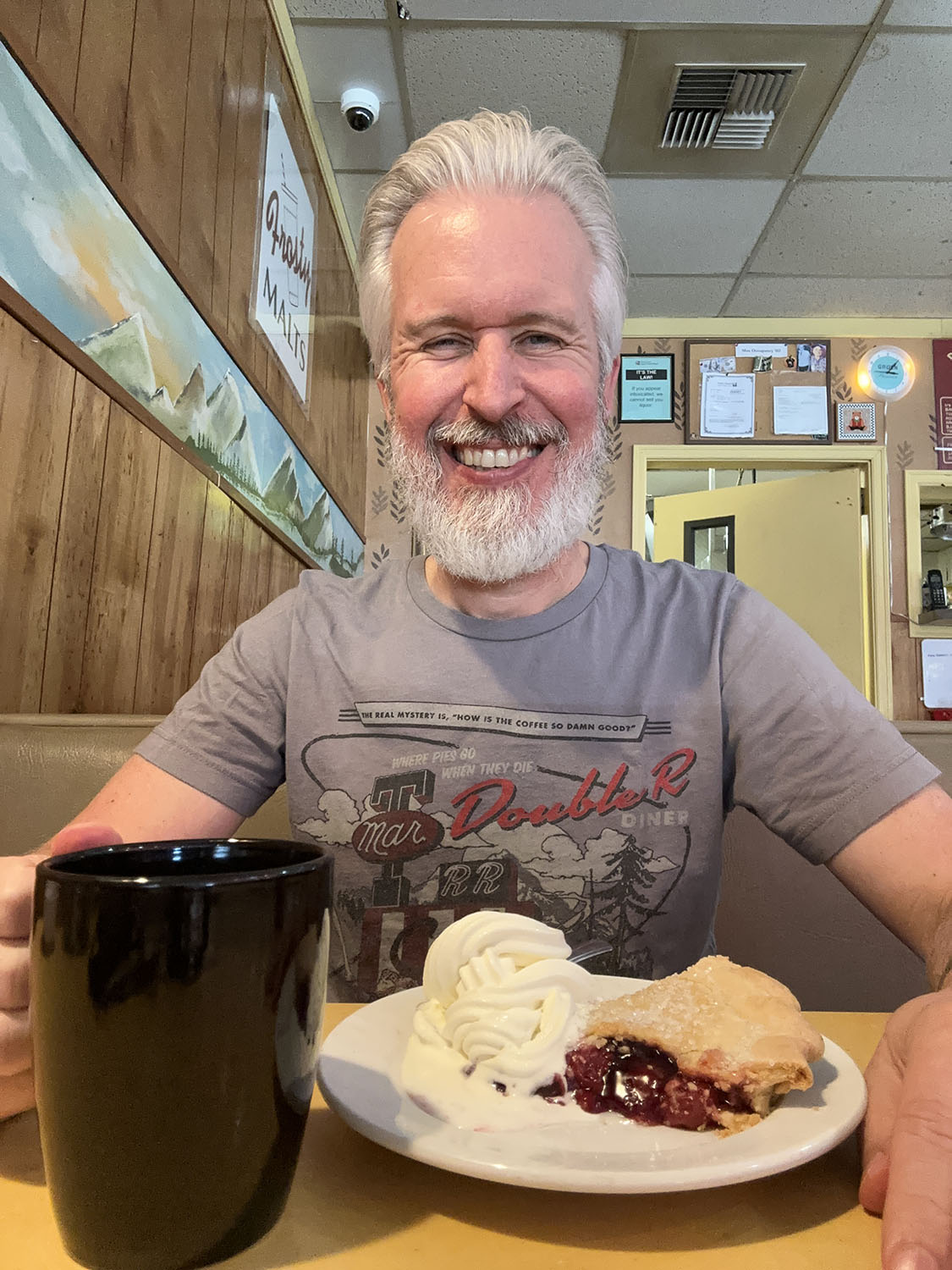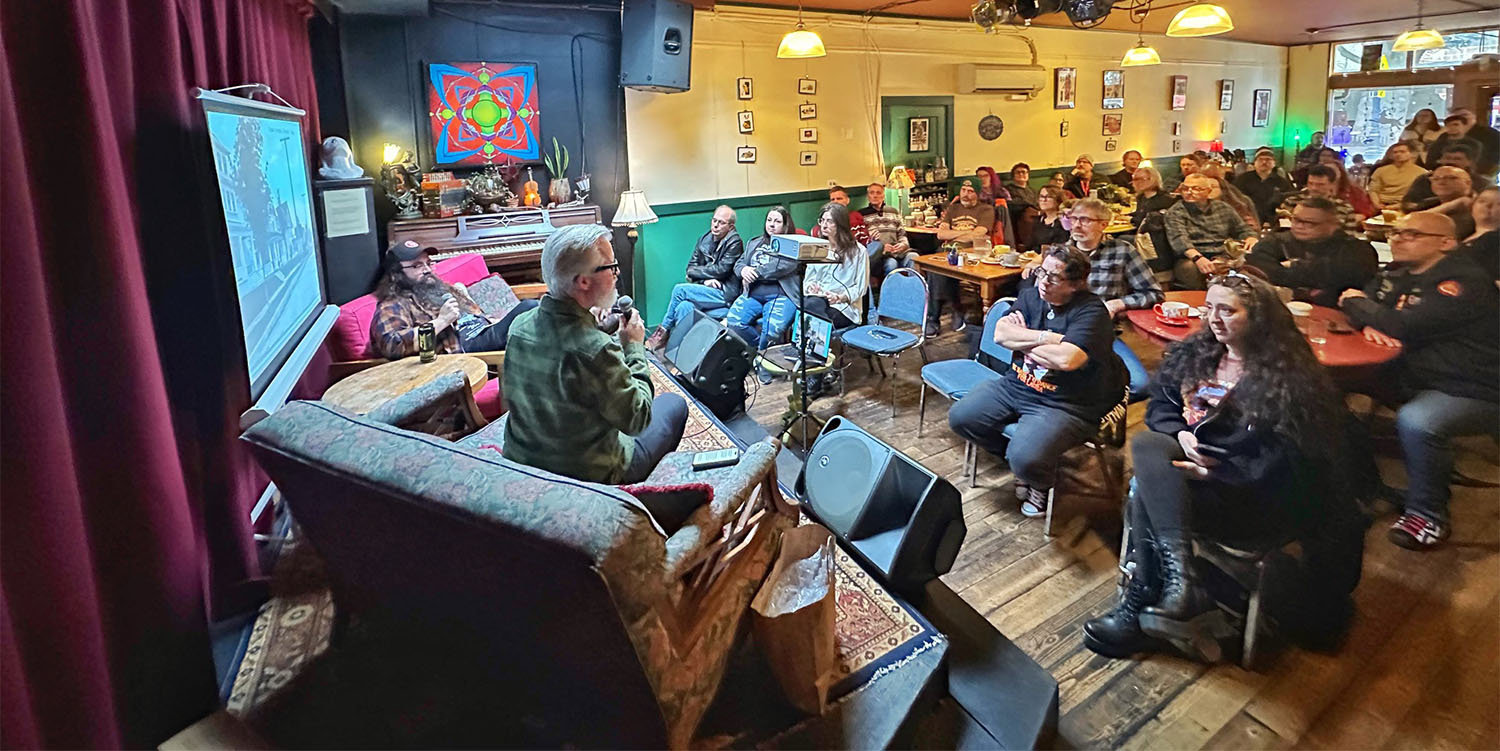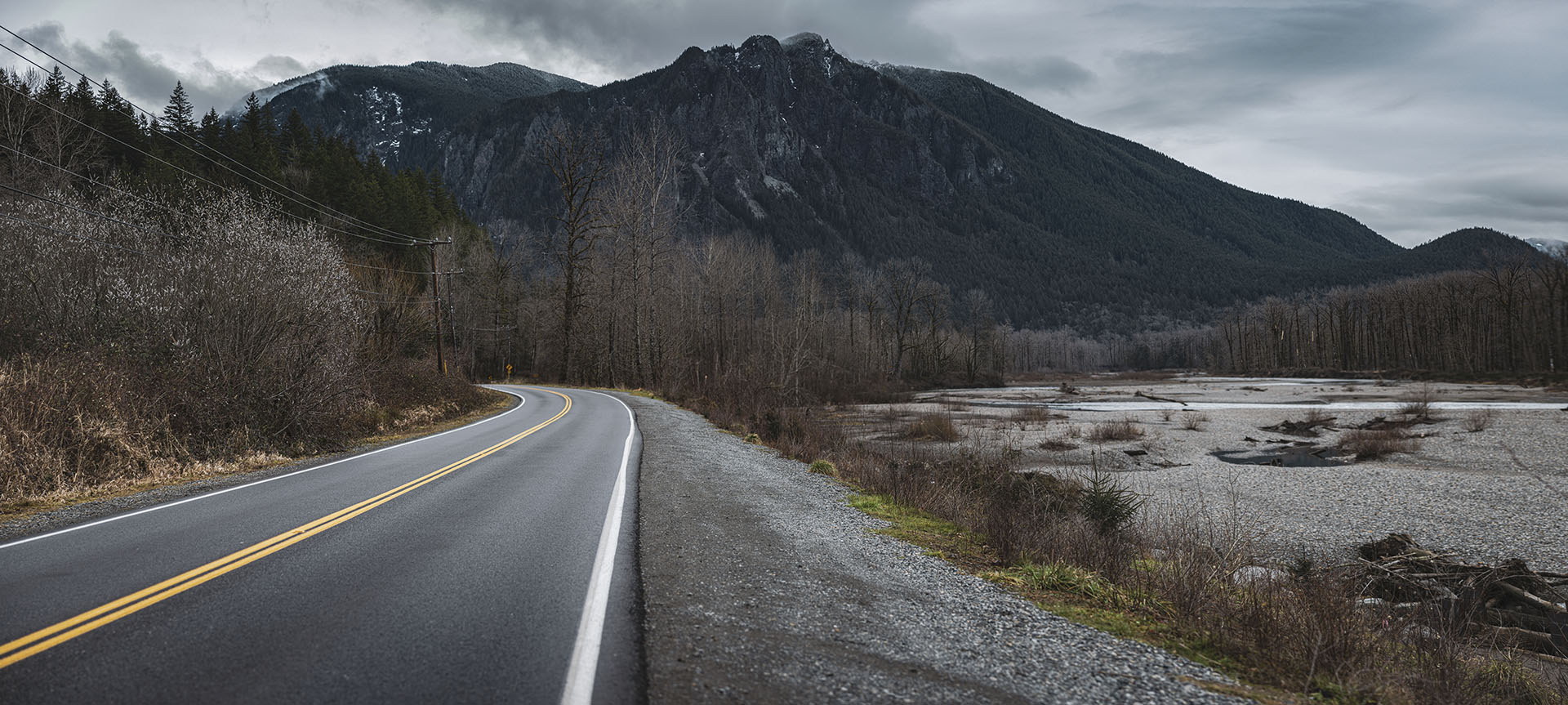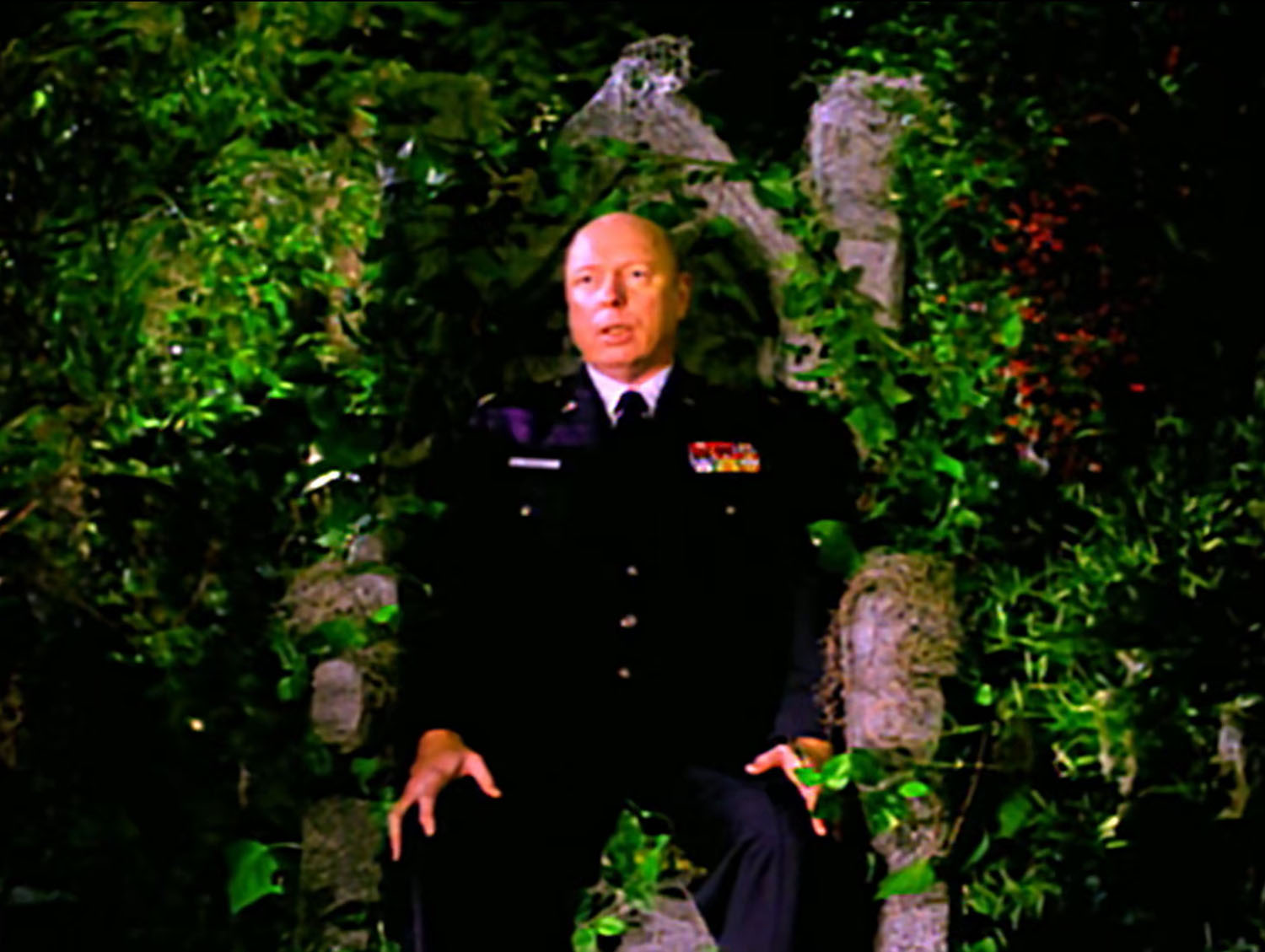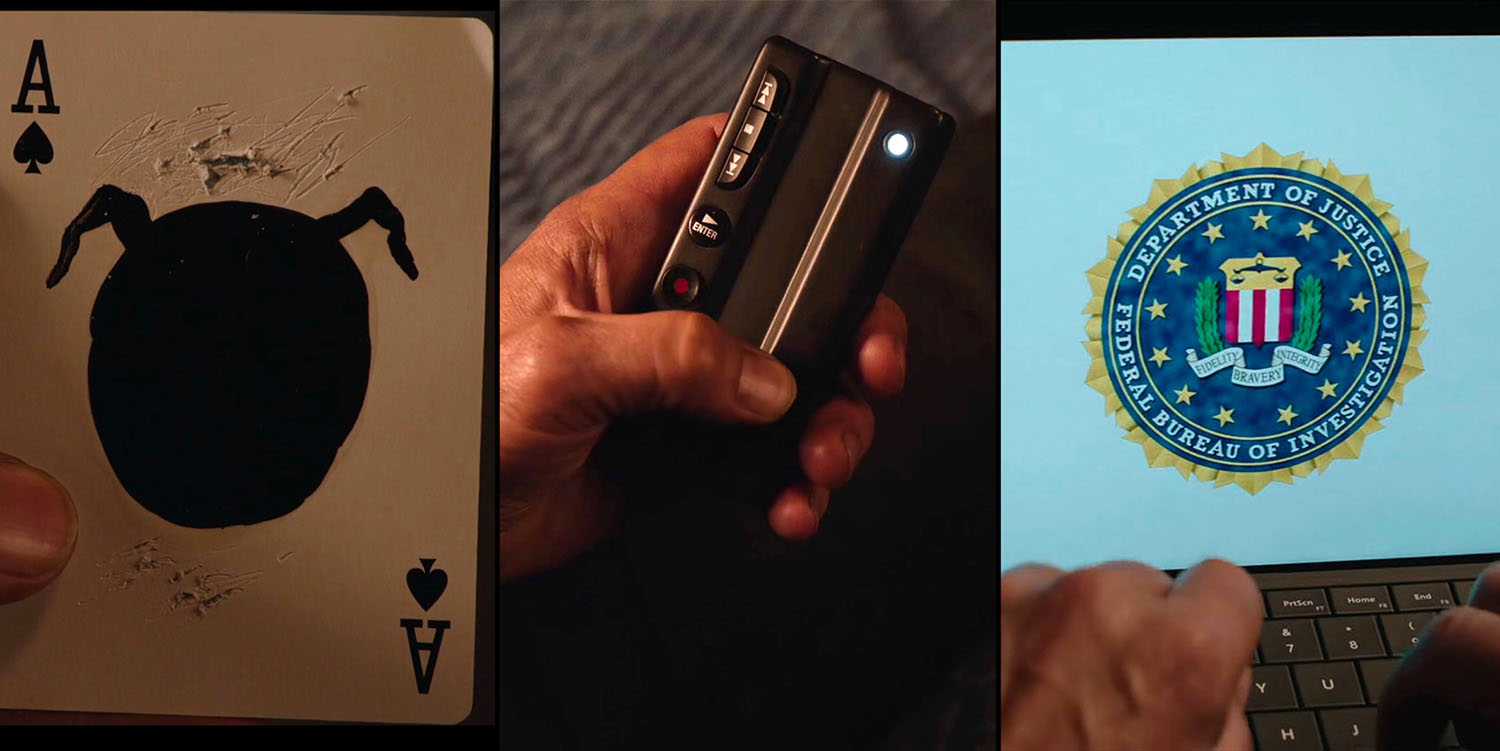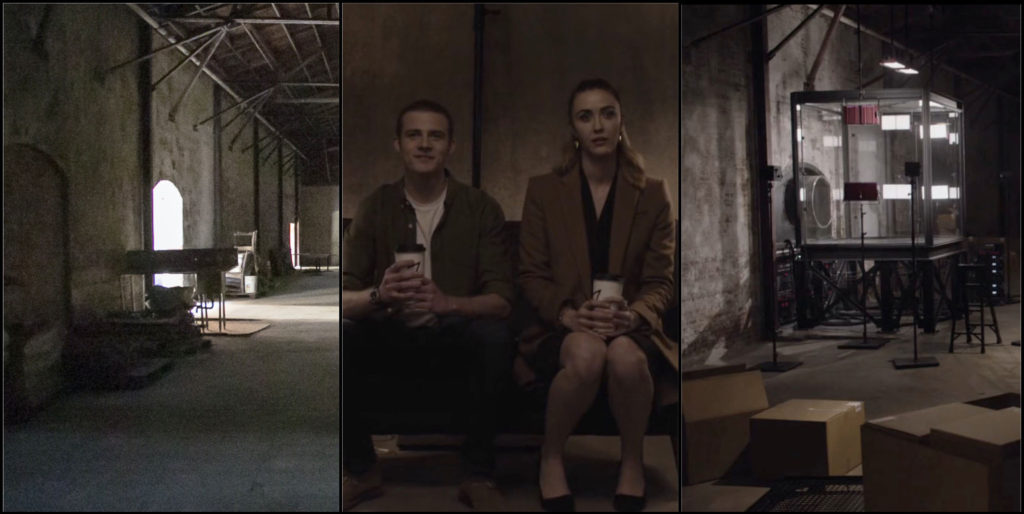
In Twin Peaks Season 3, we’re introduced to a mysterious glass box that Sam Colby is paid to watch. This top secret experiment, funded by a unknown billionaire, was in a nondescript building somewhere in New York City. But like most things in Twin Peaks, things are always what they seem. In reality, the film location for the top secret glass box scenes is near Chinatown in downtown Los Angeles. Here’s how I found it (and it didn’t take two free lattes).
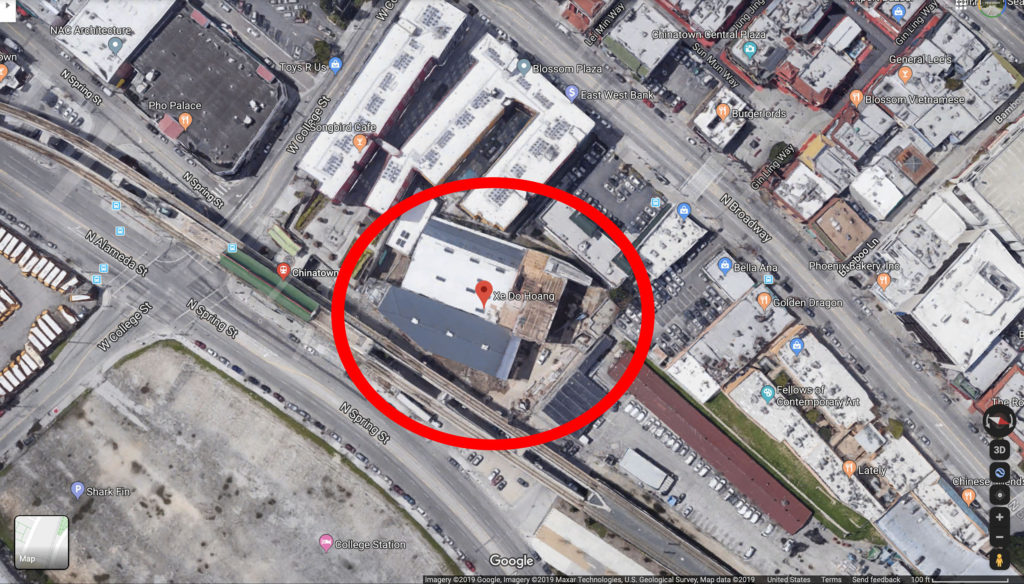
Located at 1231 N. Spring Street in Los Angeles, the former Capitol Milling Company building served as the primary location for the interior scenes. The exact coordinates of this spot are 34°03’53.0″N 118°14’10.1″W.
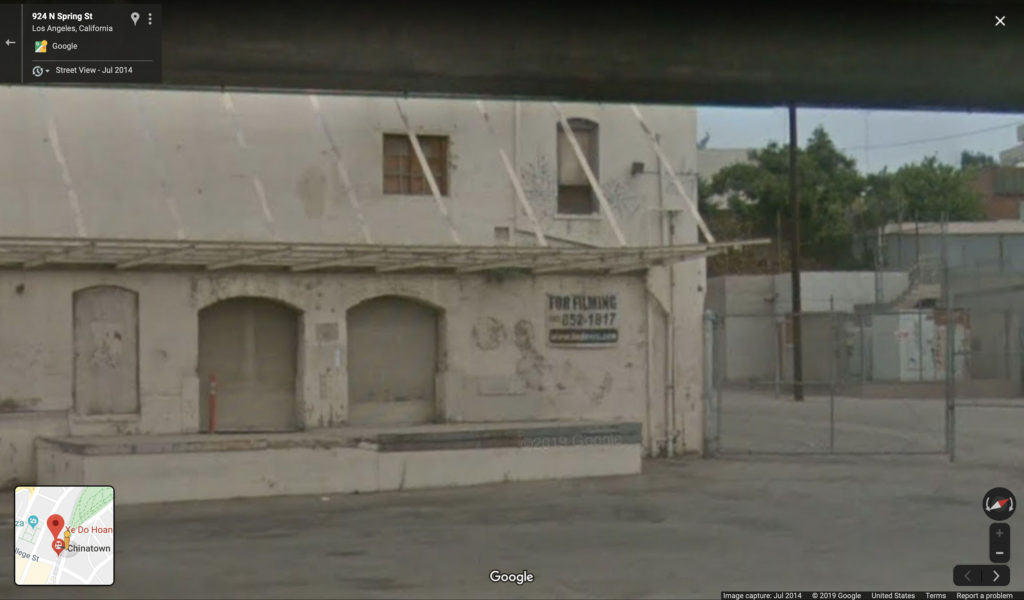
For this location, I figured it was in a warehouse somewhere in California. Â I began searching for “warehouse” film locations via Google and came across Capitol Mill. An image on Google Maps from 2014 showed the building with a “For Filming” sign but it was difficult to read the website address.
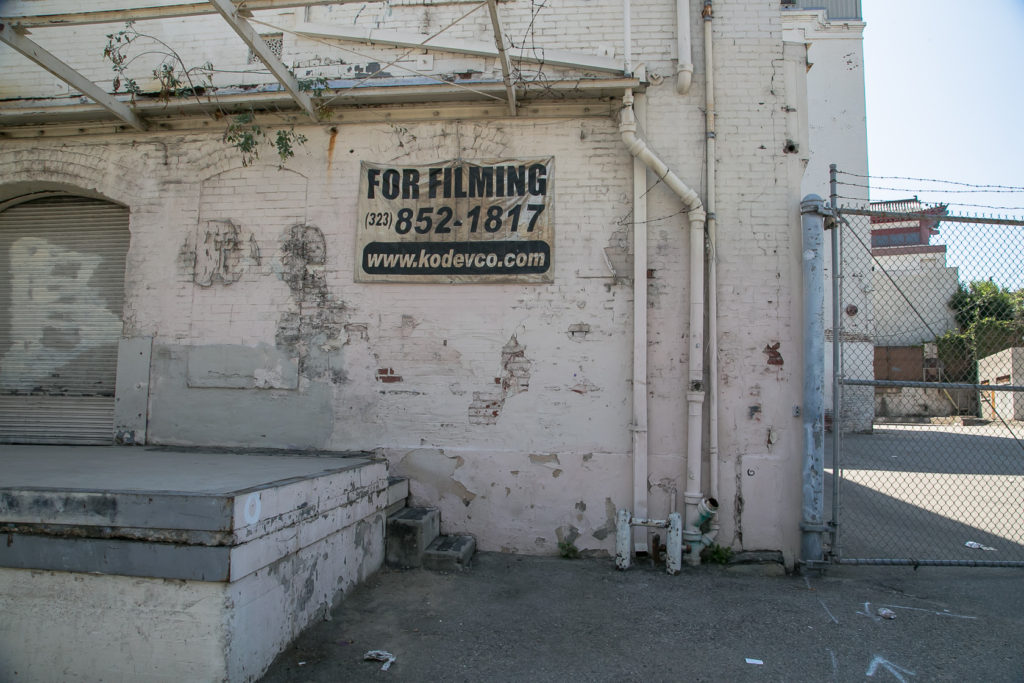
After searching around, I found another image of the sign on the building’s exterior. I quickly searched Kodevco.com and, BINGO, I found it!
As it turns out, this building has a long history in downtown Los Angeles. It’s also going through a major redevelopment which, similar to the Fireman’s House at the Tower Theatre in Los Angeles, may make the film location unrecognizable today.
HISTORY OF CAPITOL MILLING COMPANY

Capitol Milling Company opened in 1883 and the five-building complex was one of the oldest buildings in Los Angeles. According to JewishJournal.com, Abel Stearns built the complex in the 1830s. Mitchell Landsberg from The Los Angeles Times reported on Feb. 19, 2000 that Stearns, “who would become L.A.’s richest citizen, was a merchant from Massachusetts whose given name was Abel Stearns but whose nickname was ‘Horseface.'”
The mill was later purchased in 1883 by Jacob Loew, son-in-law of Los Angeles pioneer and influential businessman Harris Newmark.  Herman Levi, who was Harris’ nephew, was also brought into the business.

The company was known first as Eagle Mill, then as Deming Mill. It was renamed Capitol Milling by owners Lowe and Levi in 1883.

The Times article continued:
“The mill rose on what is now North Spring Street but then was just a patch of open country north of the pueblo. Past it flowed the zanja madre–the “mother ditch,†an irrigation channel of the Los Angeles River that has long since ceased to flow. Long gone, too, is the creak of a waterwheel that once turned giant millstones. Less distant is the roar of modern industrial machines that turned out more than 100,000 pounds of flour a day.”
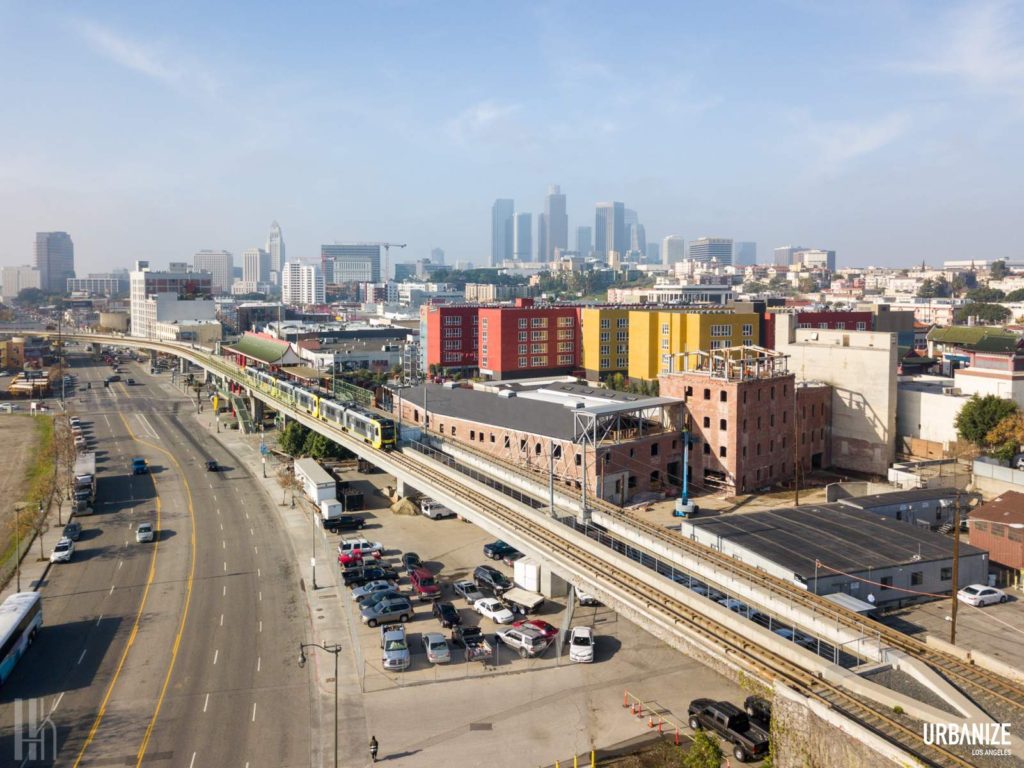
Families of these original owners operated the flour mill until August 1998 when it was sold to packaged-food company Conagra, then to the Riboli family who runs San Antonio Winery. In 2000, they planned to turn the old buildings into residential lofts and office spaces.
WORKSHOP DESIGN COLLECTIVE
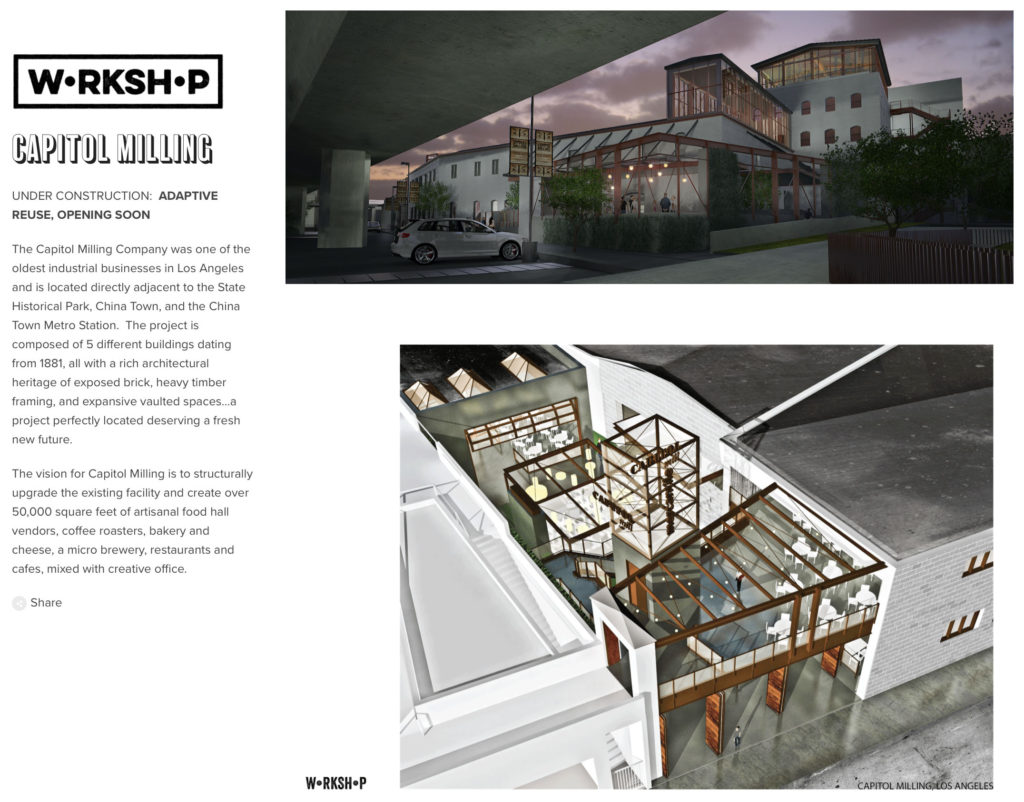
Nearly 17 years later from that Los Angeles Times article, Workshop Design Collective began work on a $20 million adaptive reuse project for the former site. According to their website, “The project is composed of 5 different buildings dating from 1881, all with a rich architectural heritage of exposed brick, heavy timber framing, and expansive vaulted spaces…a project perfectly located deserving a fresh new future.”
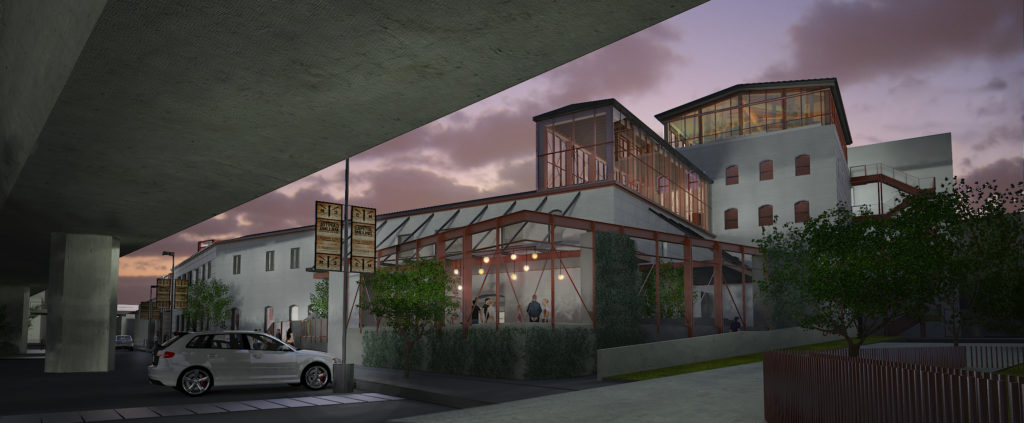
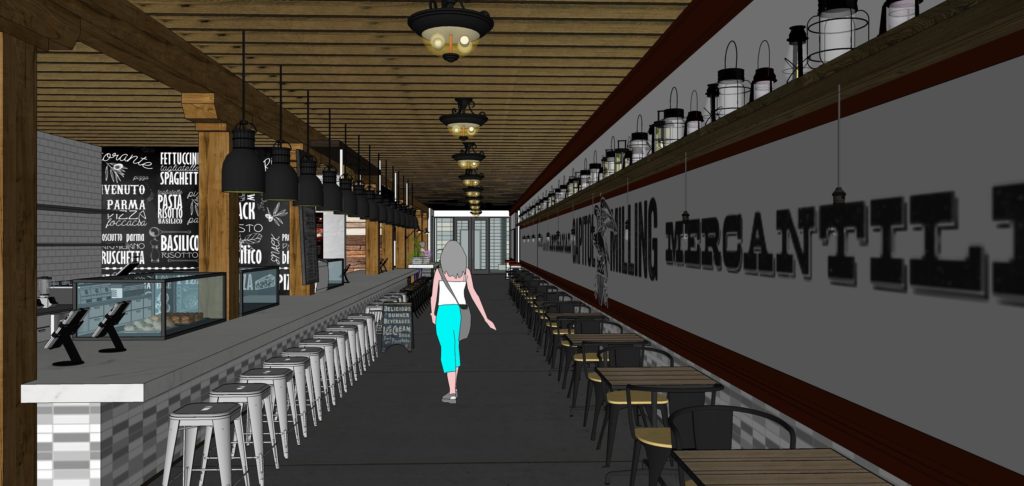
The Workshop Design Collective plans to “structurally upgrade the existing facility and create over 50,000 square feet of artisanal food hall vendors, coffee roasters, bakery and cheese, a micro brewery, restaurants and cafes, mixed with creative office.”
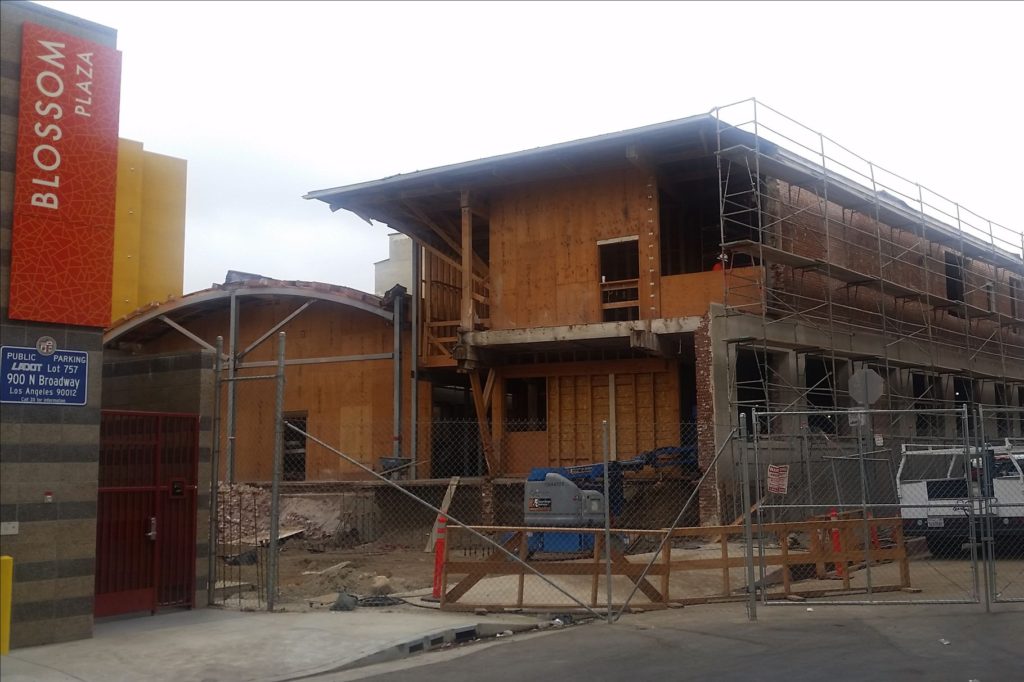
Bianca Barragan from La.Curbed.com checked on the construction in June 2017. It’s crazy to think that while we were enjoying the original run Season 3 this building was going through a dramatic change. If they don’t add a glass box somewhere in this building, it will be a total waste of development money.
Ms. Barragan reported again in September 2019 about this project as related to a 27-story tower that the Riboli family is looking to also develop in Chinatown. No word, however, when the Capitol Milling Project would be completed.
But all is not lost as I found several images from inside the former mill before construction began. The easiest way to showcase this location is to focus on individual scenes as we will never have true screen-to-location photos.
THE GLASS BOX EXPERIMENT ROOM
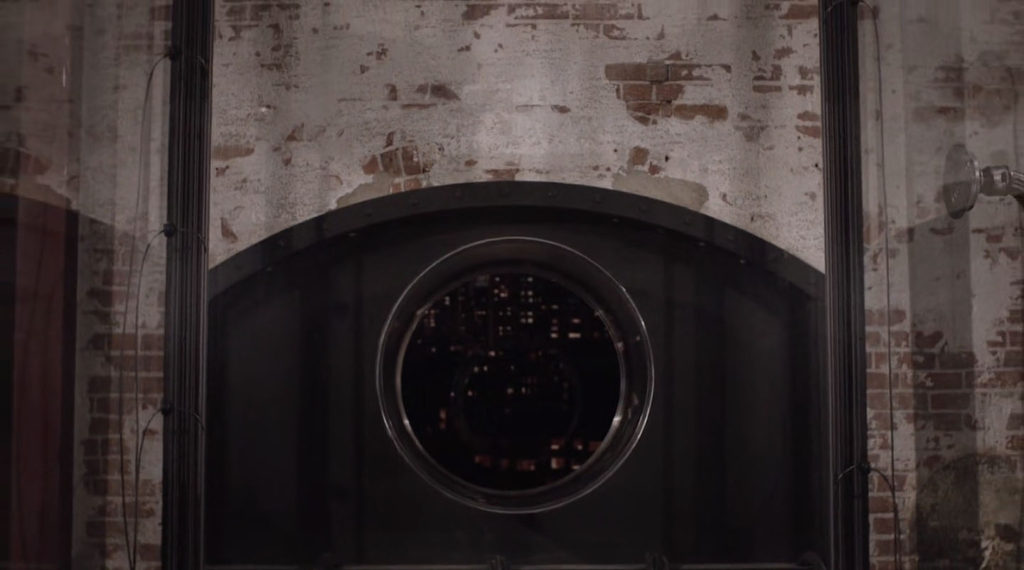
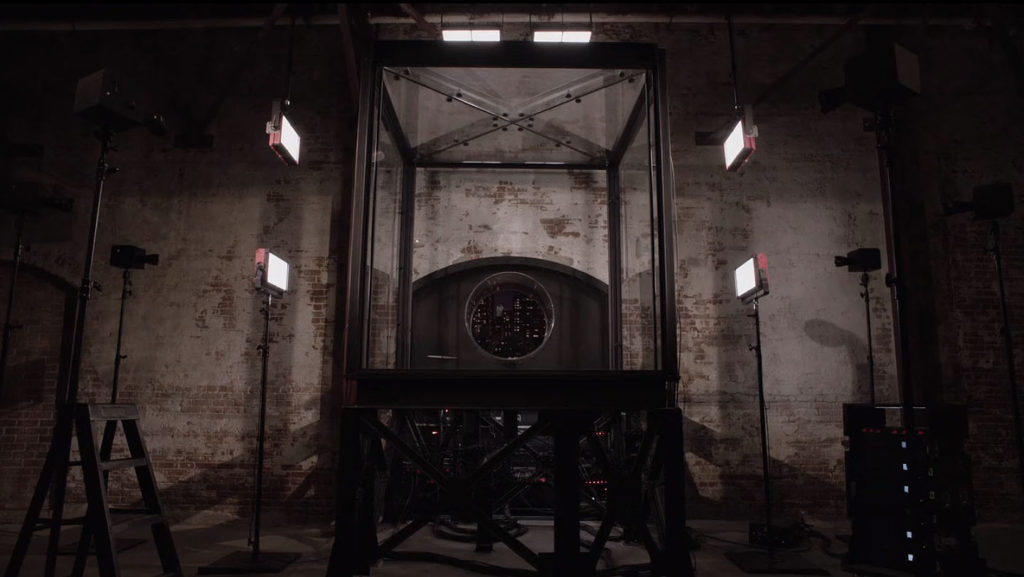
After a short establishing shot of New York City at night, the camera slowly pans toward a brick building. I’m saving the conversation about the building exterior for another article. Long story short, I believe it was partially created by BUF, the graphic special effect company who worked on the series, possibly using real building references.
The camera then cuts to the mysterious glass box. This was an actual set built inside Capitol Milling. The nighttime skyline seen in the tube, however, was a green-screen special effect added by BUF.
GLASS BOX ROOM VIEW FROM THE RIGHT SIDE
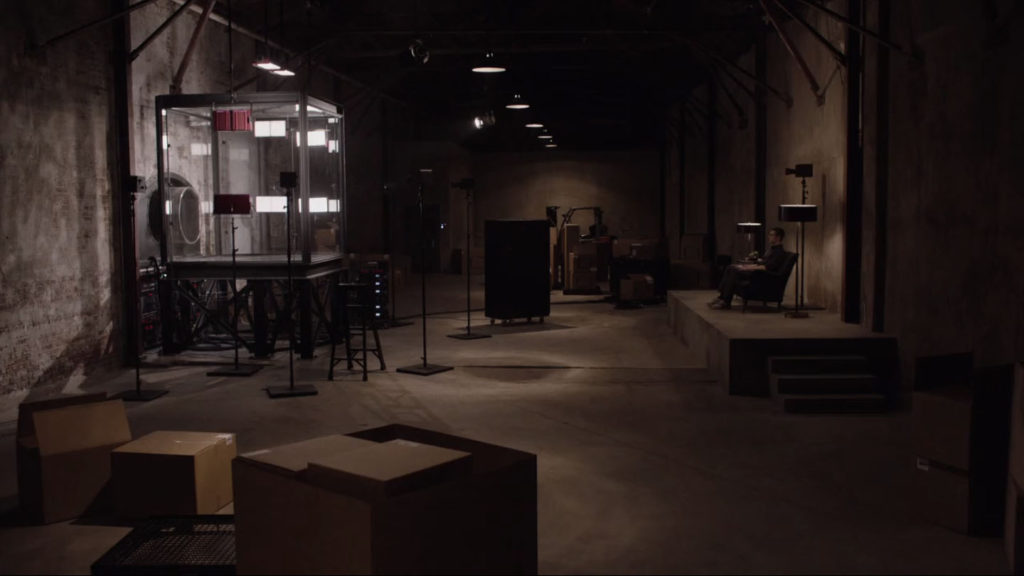
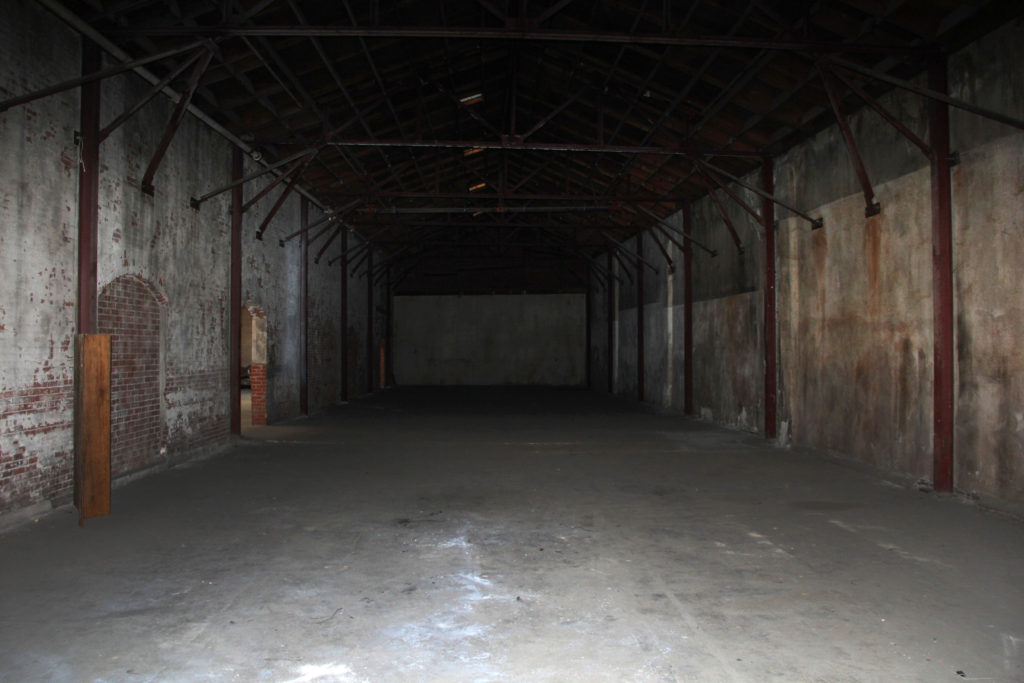
We see a long shot of Sam Colby watching the glass box. The bottom image is of the same room. Notice the open archway as that is where the glass box was placed. The platform for Sam’s love seat was developed by the crew.
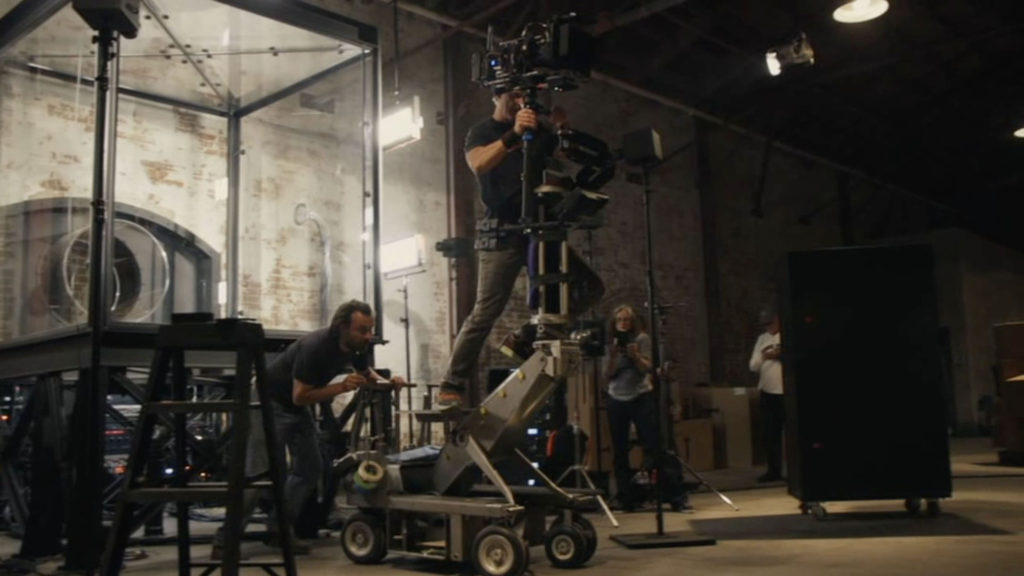
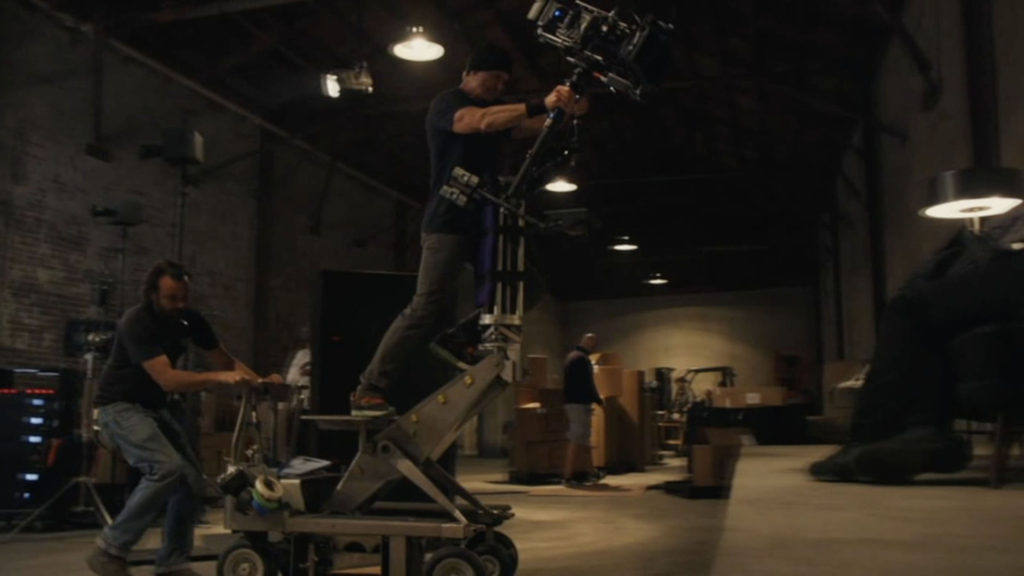
You can see the same room in the short film by Jason S. titled “Two Blue Balls.” I love the shot of George Billinger III on Stedicam being wheeled on a cart toward the couch.
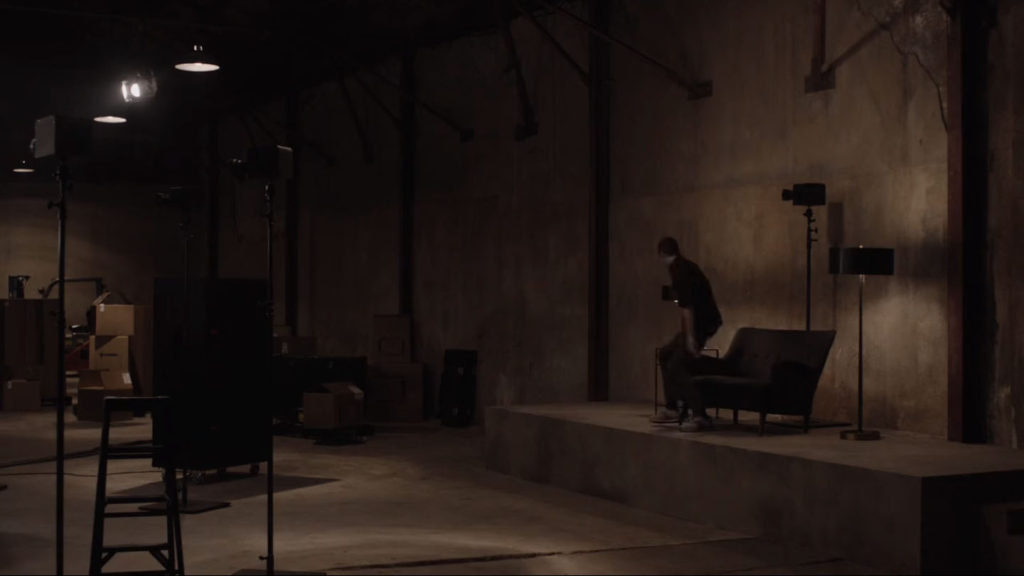
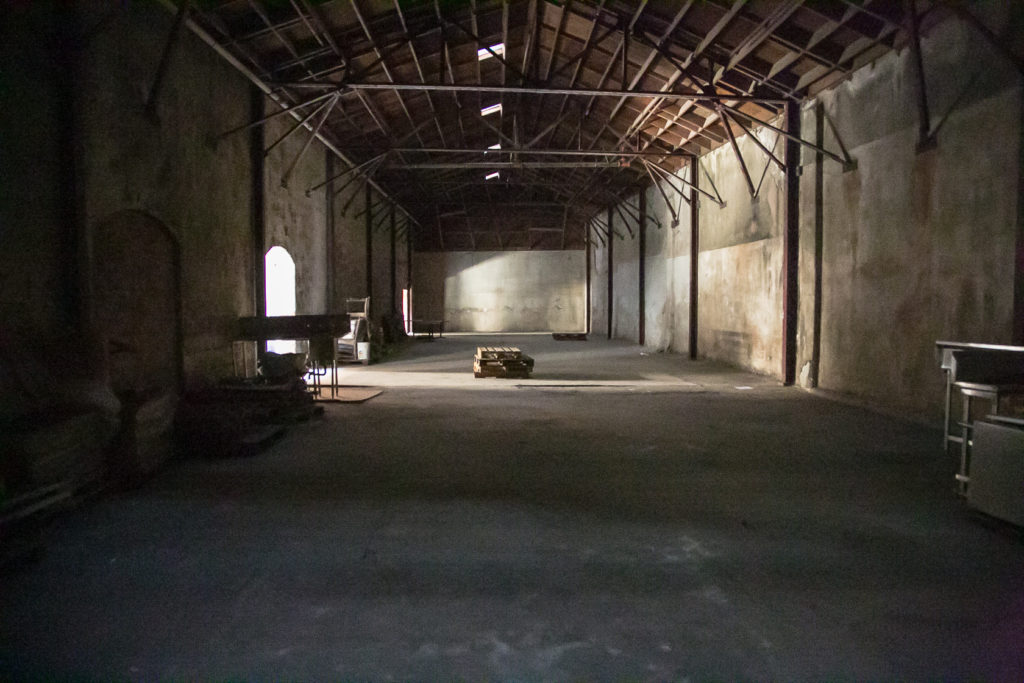
Here’s another look at the platform when Sam gets up to change the camera disk.
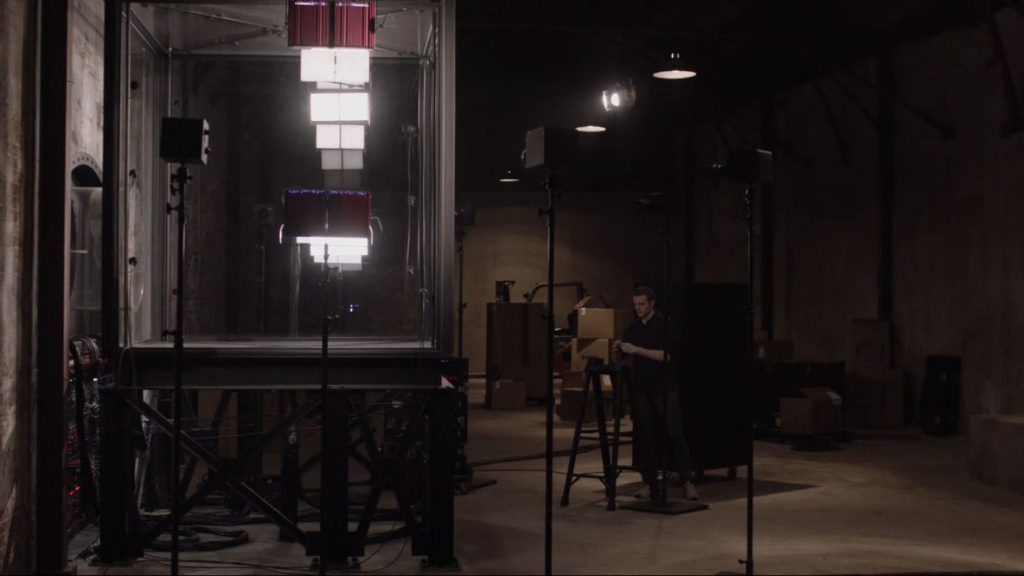

Here’s a great side view of the glass box and a picture of Capitol Milling Company under construction in 2017. This is the same room as before except the brick walls have been exposed.
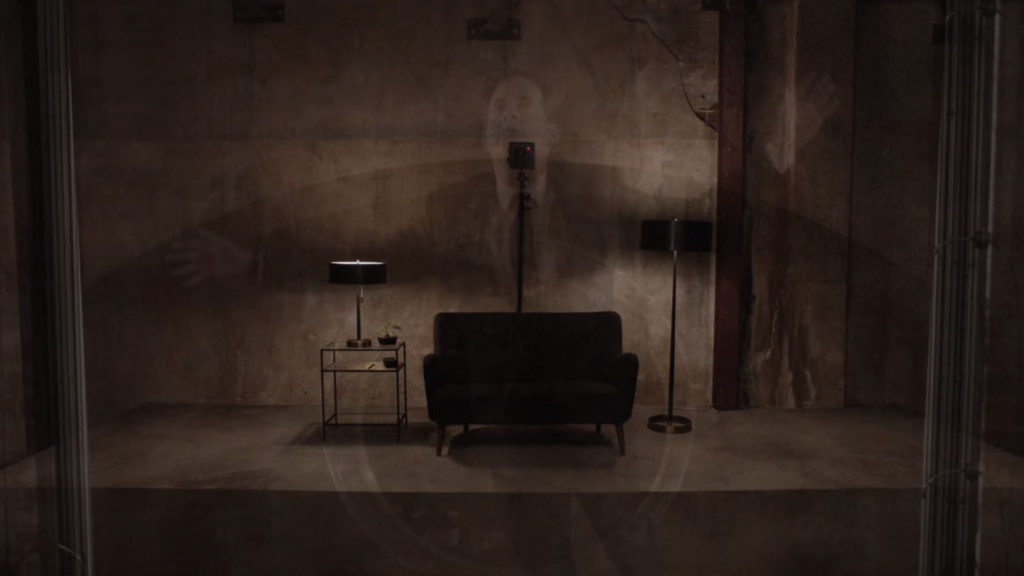
You can see part of those covered brick walls peeking through when Cooper flies into the box in Part 2.
GLASS BOX ROOM VIEW FROM THE LEFT SIDE

We switch sides now and look at the room from the left side.
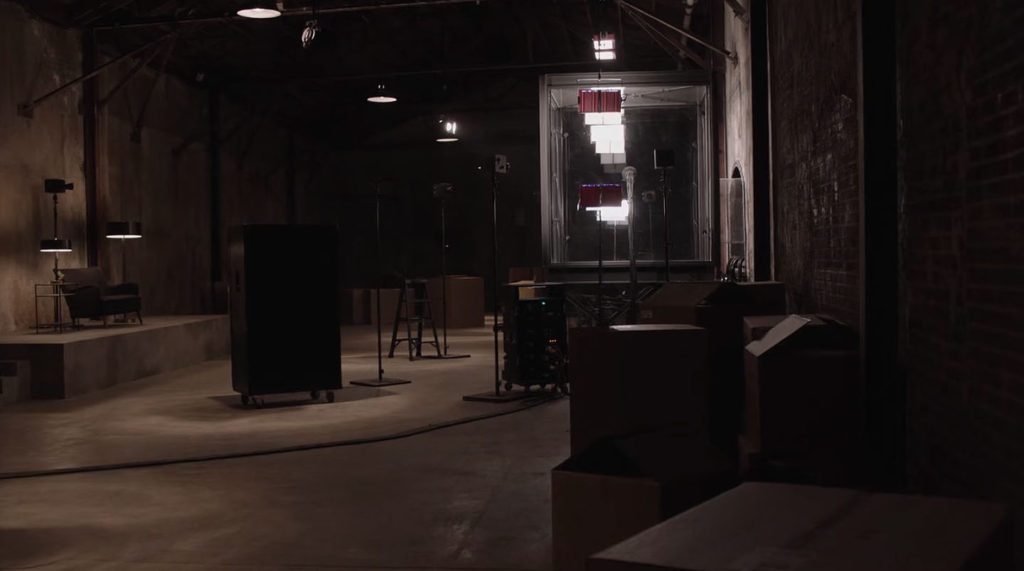
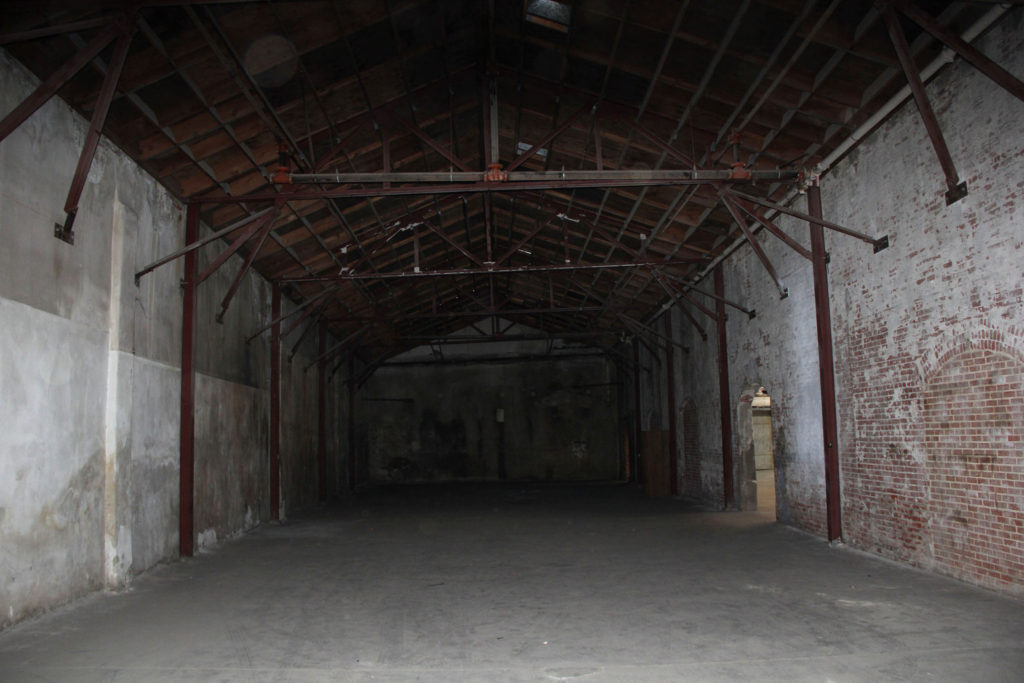
The archway in the bottom photo is where the Glass Box would have been placed.
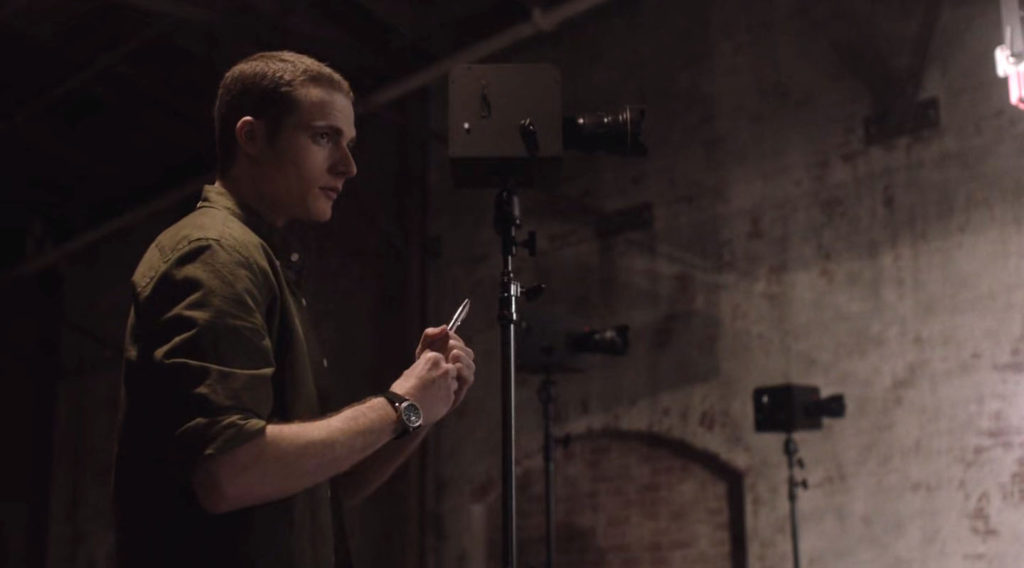
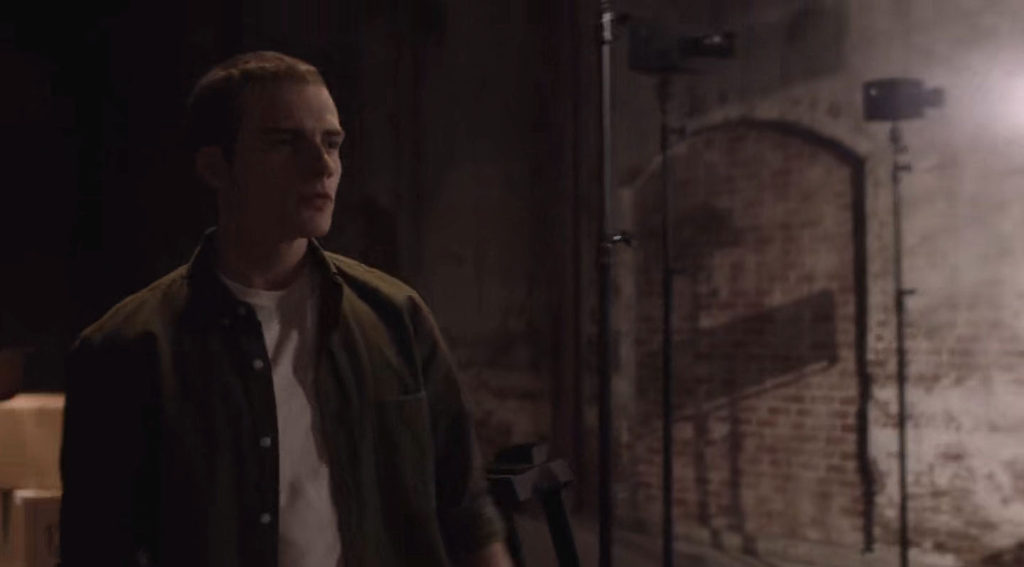
As Sam checks the camera and crosses the room, we see once of the archways next to the glass box that’s filled with bricks.
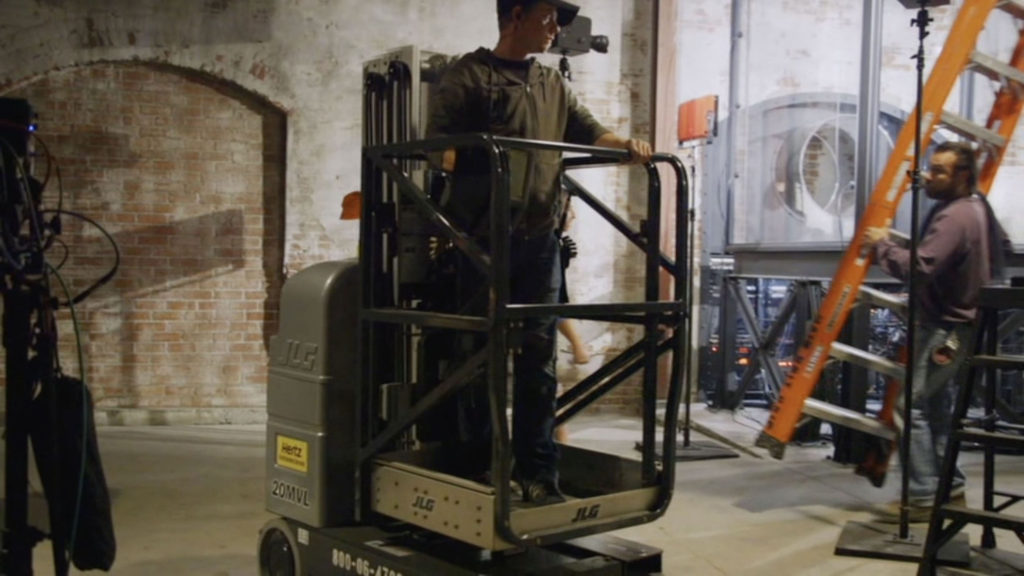
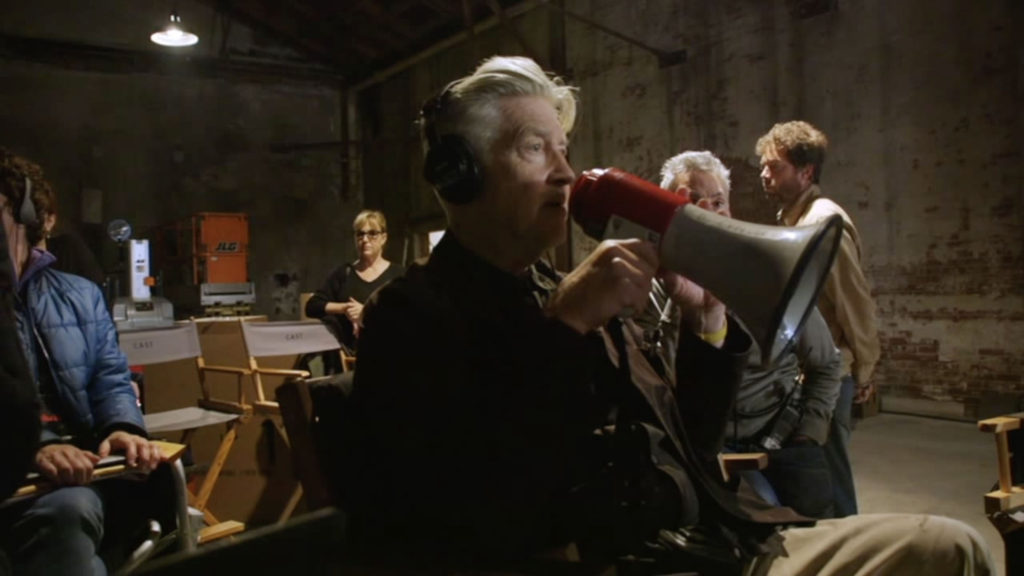
We see the same wall in the background of two images from “Two Blue Balls,” a short film by Jason S. There is also a glimpse of a doorway behind David Lynch’s shoulder.
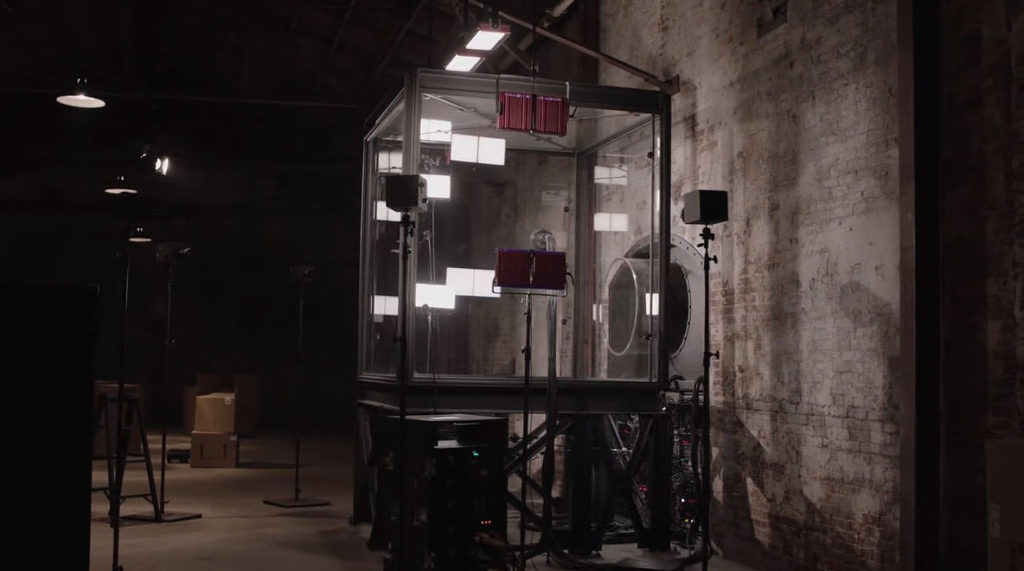

One last look at the Glass Box and the same spot under construction in 2017.
THE ENTRANCE TO THE GLASS BOX ROOM
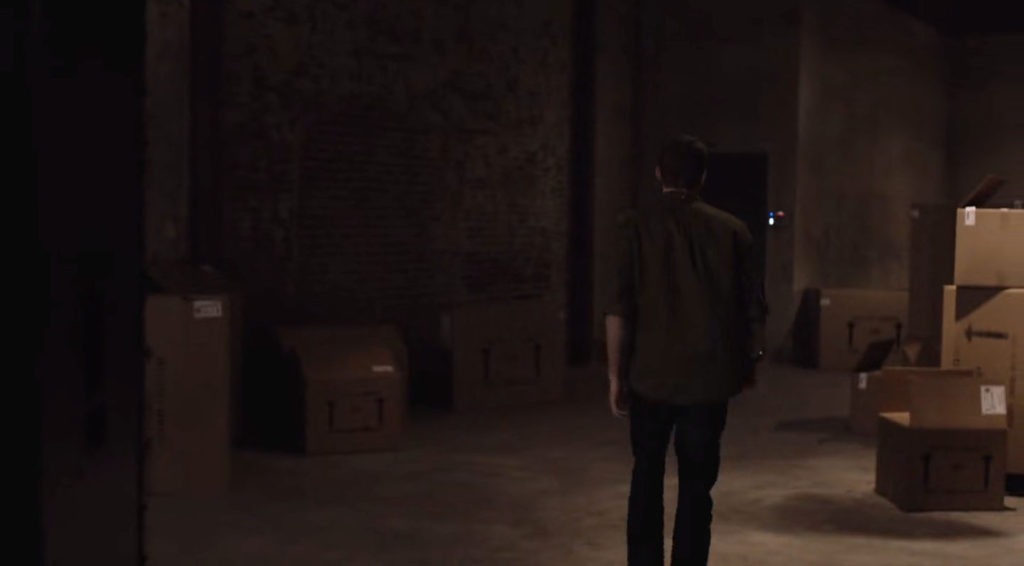
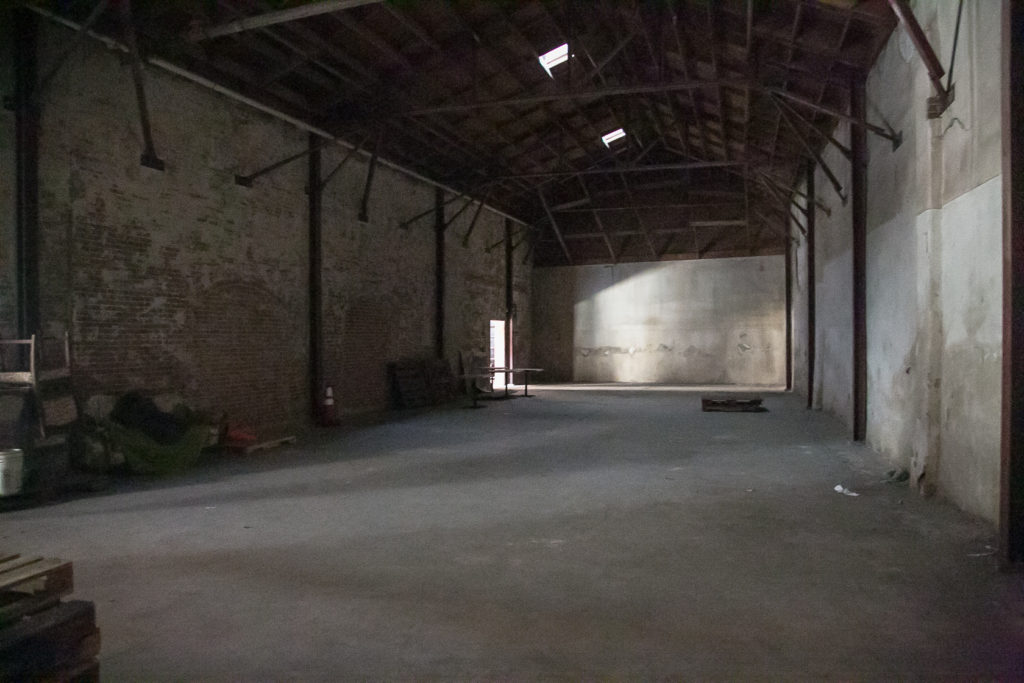
As Sam leaves the room early in the episode, we catch a glimpse of the coded door. It appears this door and wall were created specifically for the series as it’s not present in the actual location.
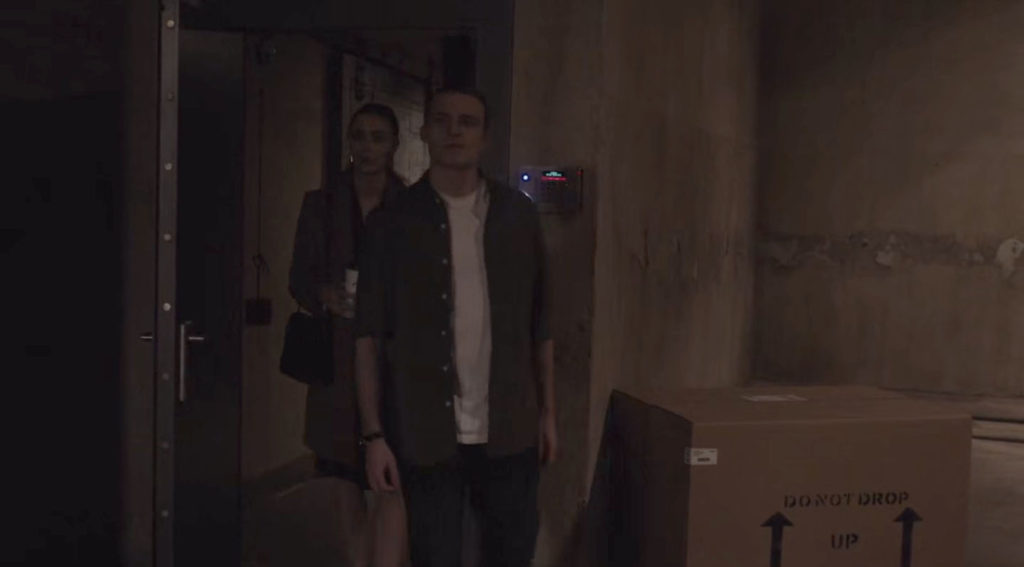
When Sam Colby returns later in the episode with Tracey Barberato, we catch a glimpse of a giant metal door.
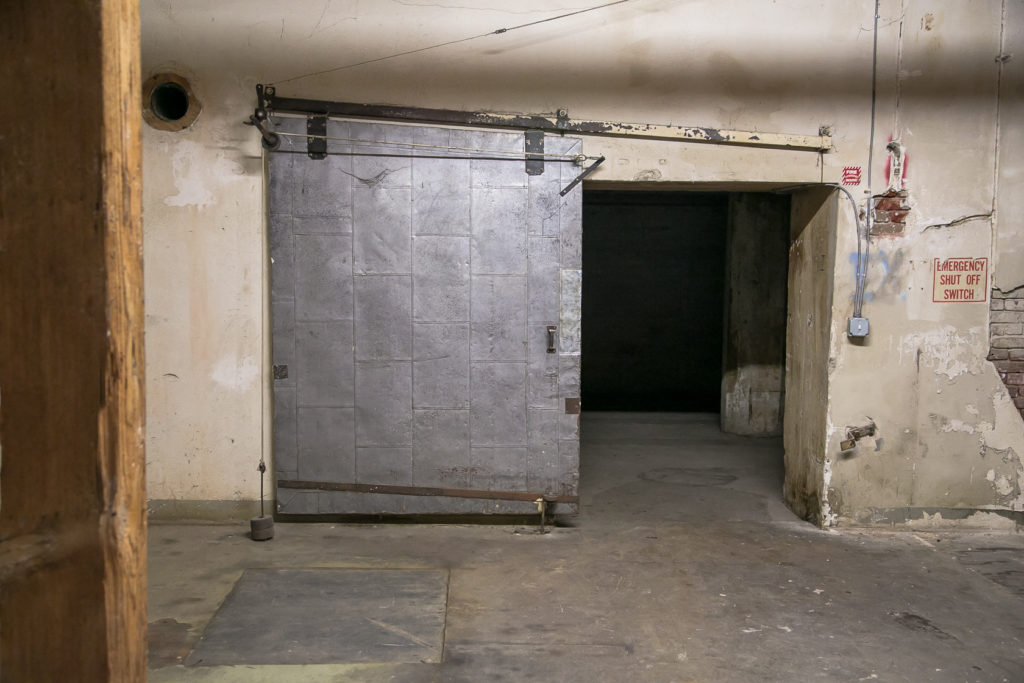
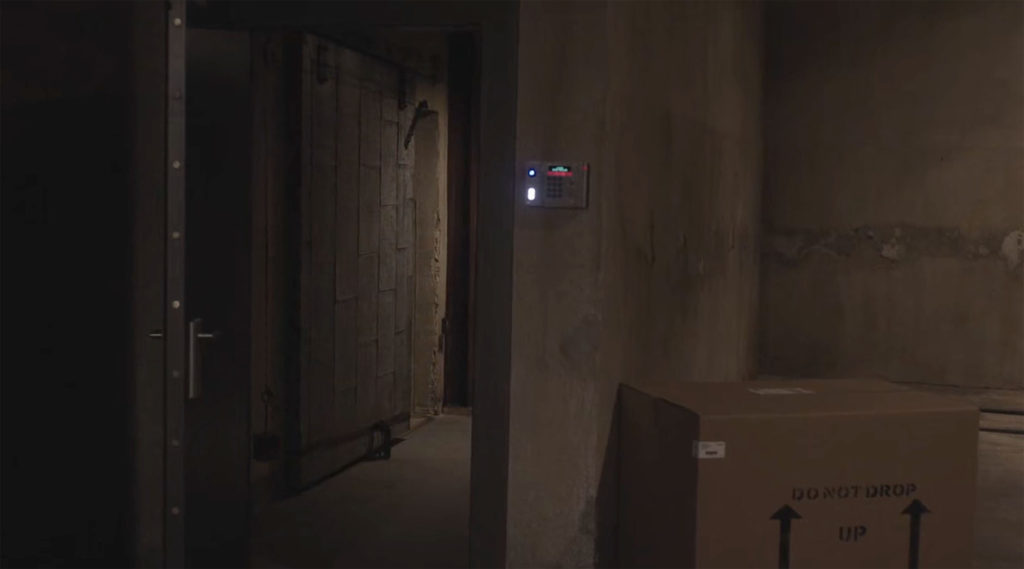
The top image is of the same door which is better seen just before Sam and Tracey enter the room. Â I believe the space seen through the metal door opening is where the Security Desk was placed.
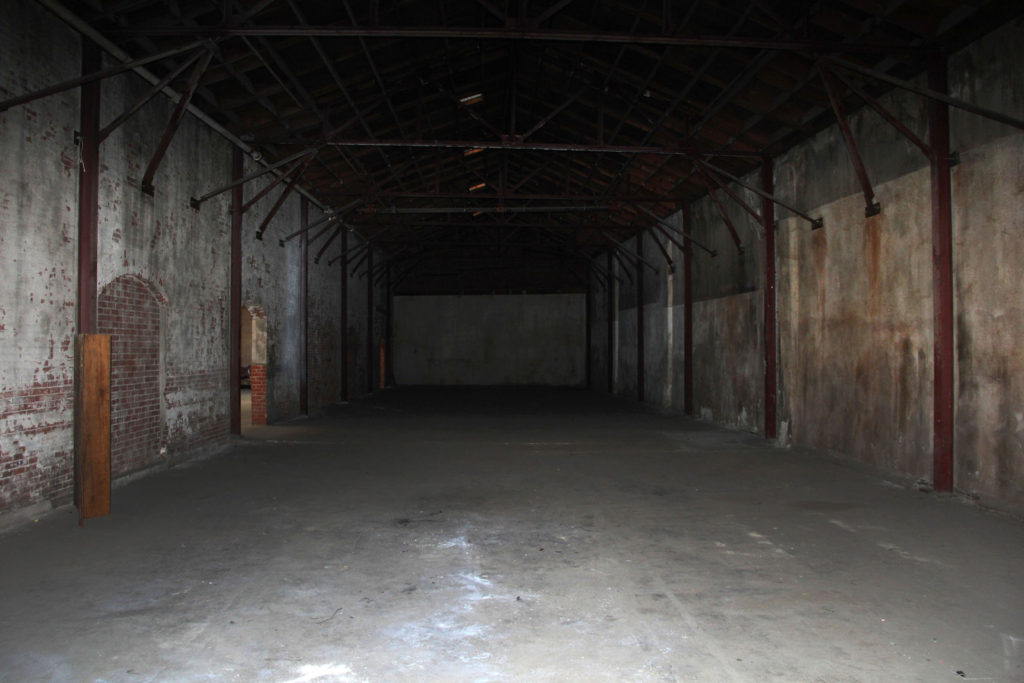
Here’s one final look at the Glass Box Room. Again, the door entrance and surrounding walls are not present in this location image.
THE SECURITY DESK
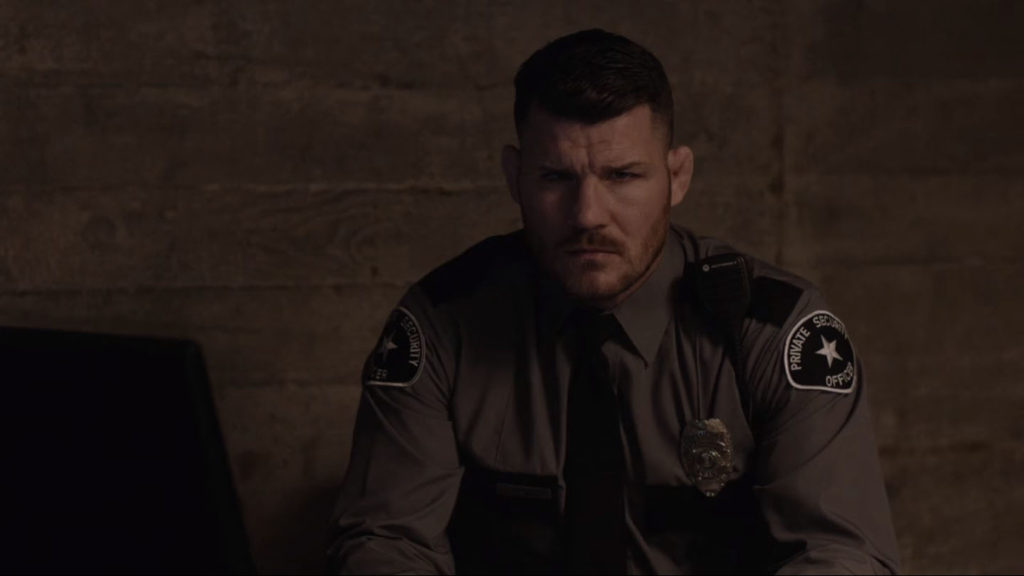
A Private Security Guard (played by Michael Bisping) waits outside the room.
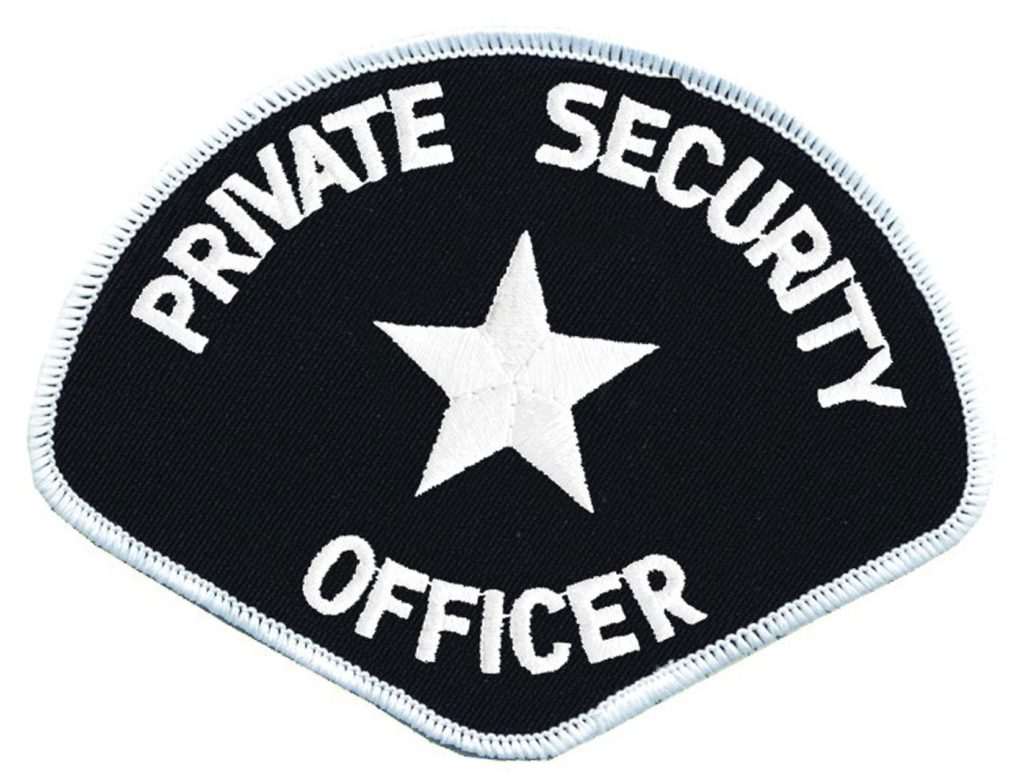
Side note, here is a photo of the “Private Security Guard” patch he wears which can be purchase online at UniformWarehouse.com.
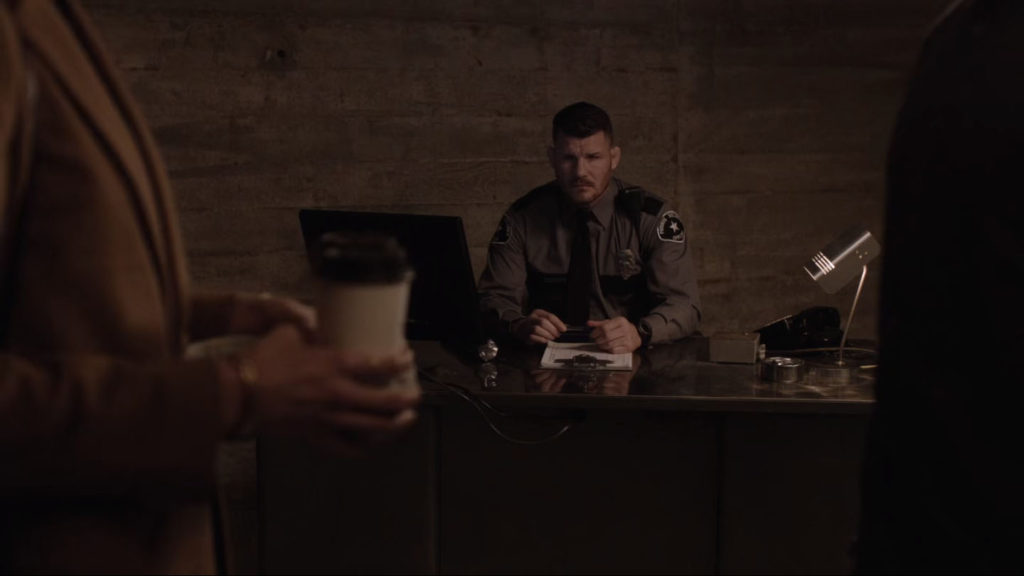
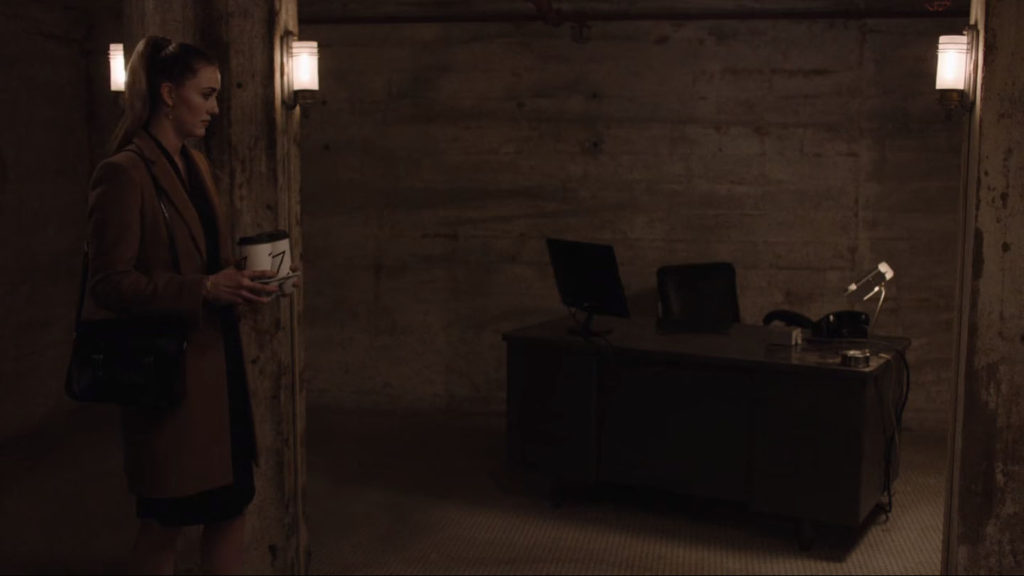
The desk was placed along a wall behind a series of columns. Lights were added to these columns by the crew.
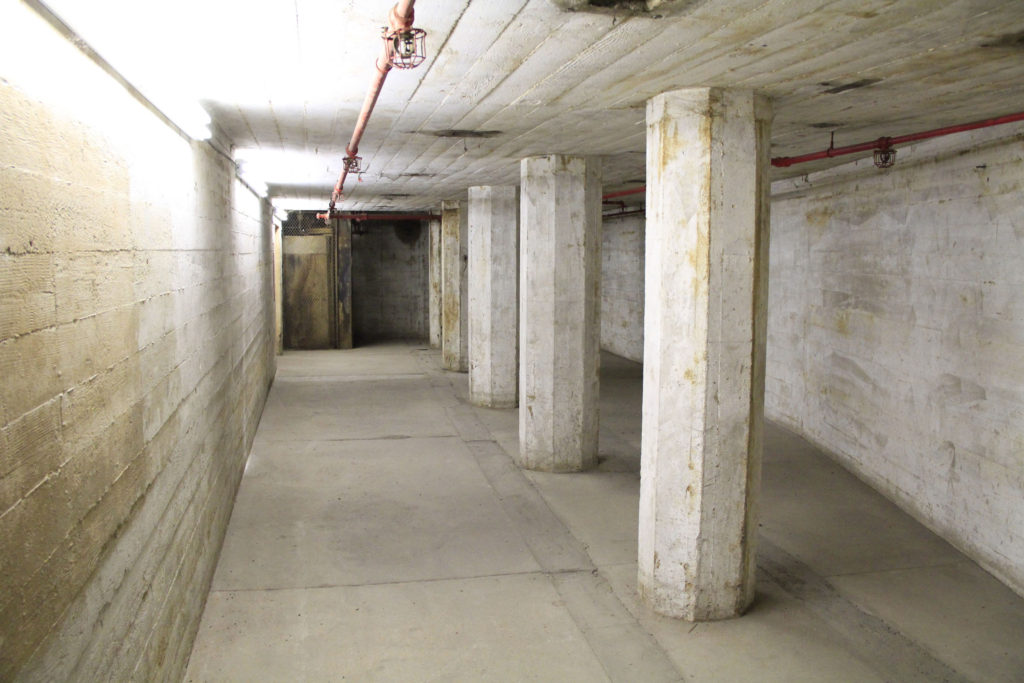
Despite many searches, this is one of two photos I found of this room. It’s taken from the far end. The security desk would have been behind those columns on the right. This may also be a different floor than where the actual desk was placed (could be the floor above).
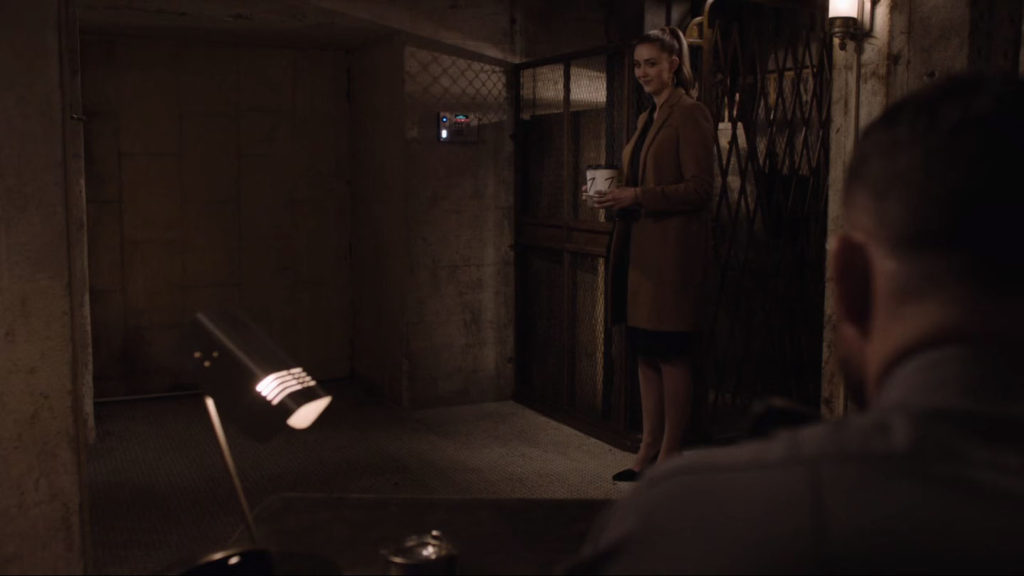
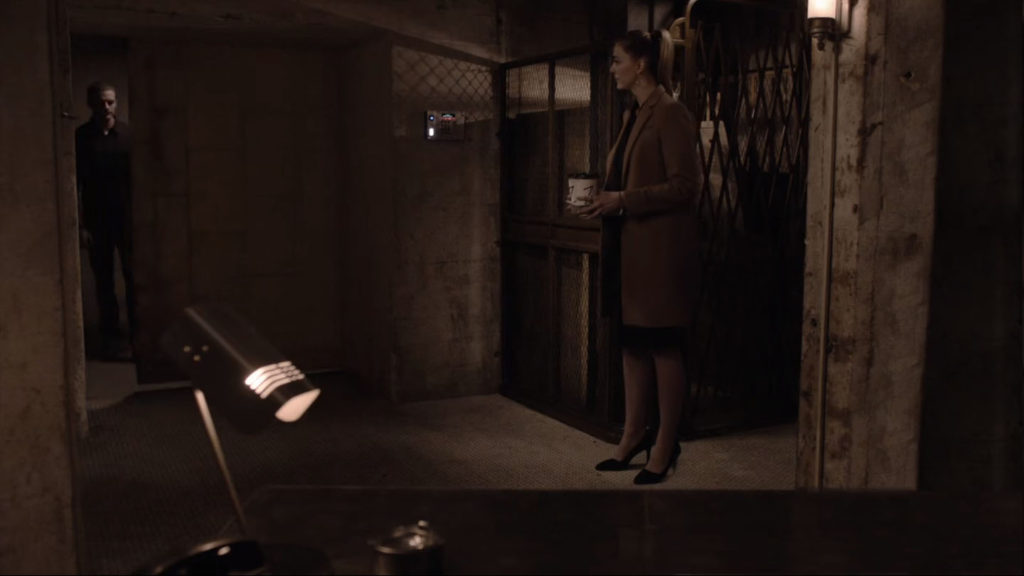
Tracey is seen waiting with coffee near a metal cage elevator. Notice the door Sam enters.
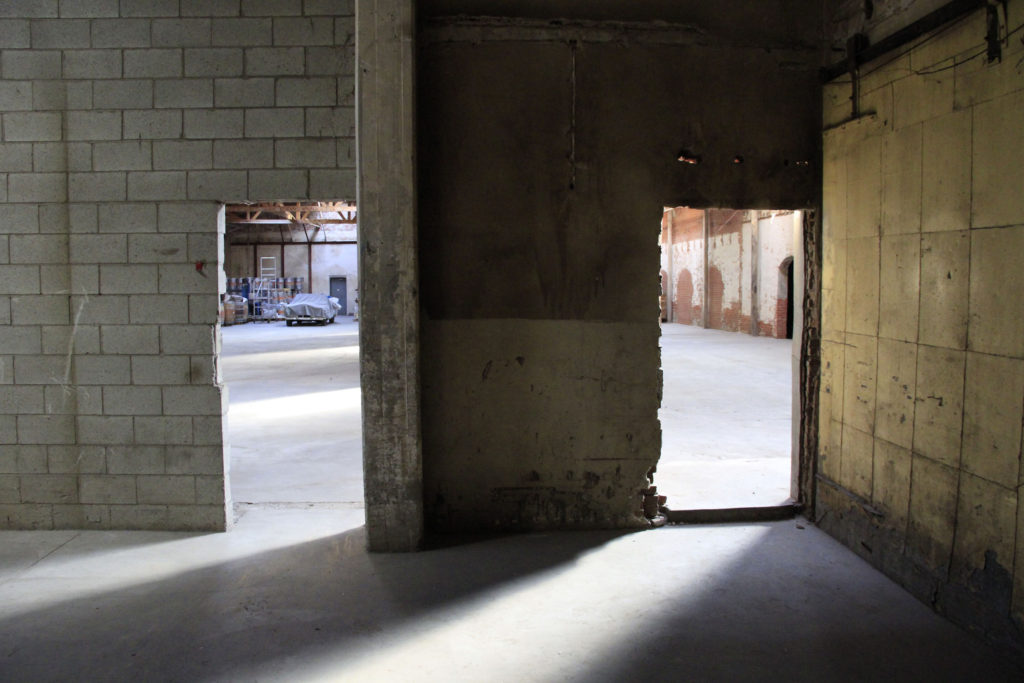
It appears to match the texture of the yellow door on the right side of this location image.
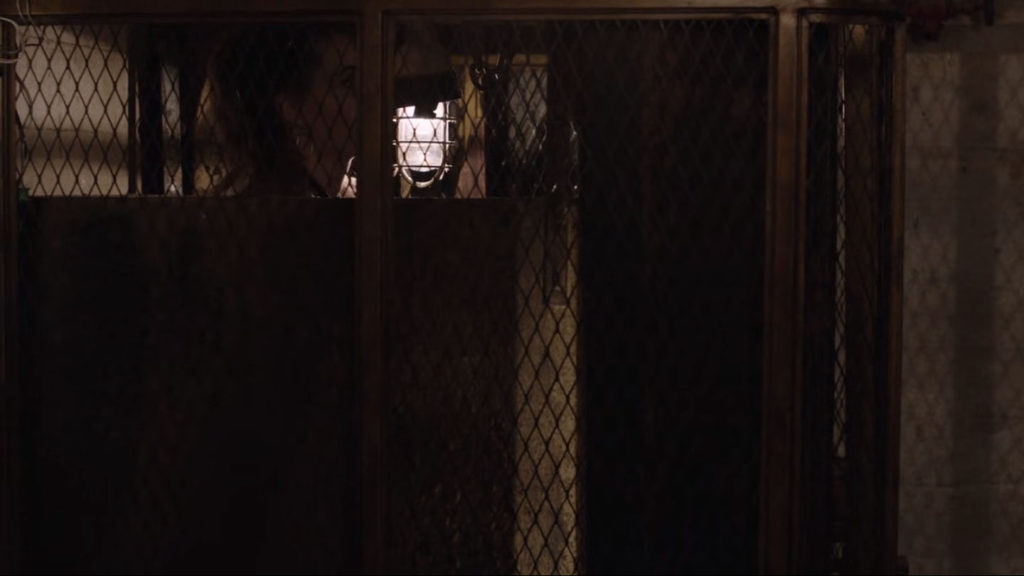

The cage elevator appears to be the same as in this image though, as mentioned, it’s probably a different floor.
THE BATHROOM
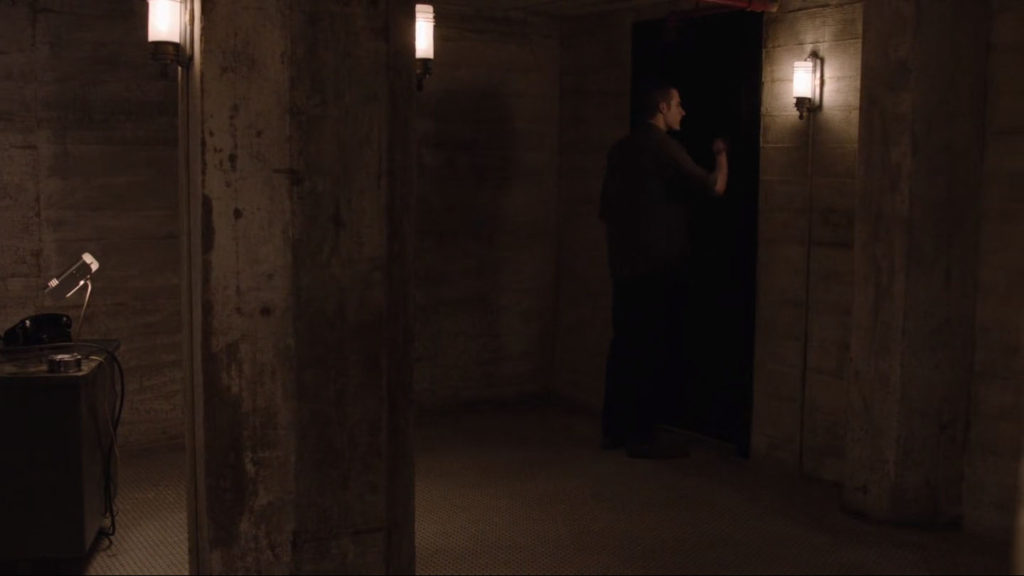
When they notice the Private Security Guard missing, Sam knocks on the bathroom door. There is a metal door just offscreen to the right of this image.
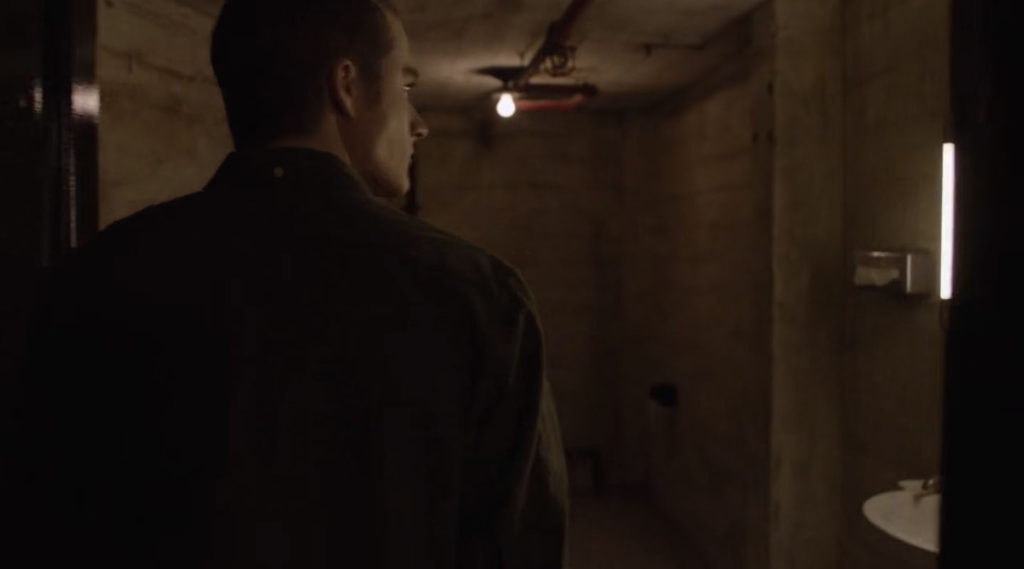
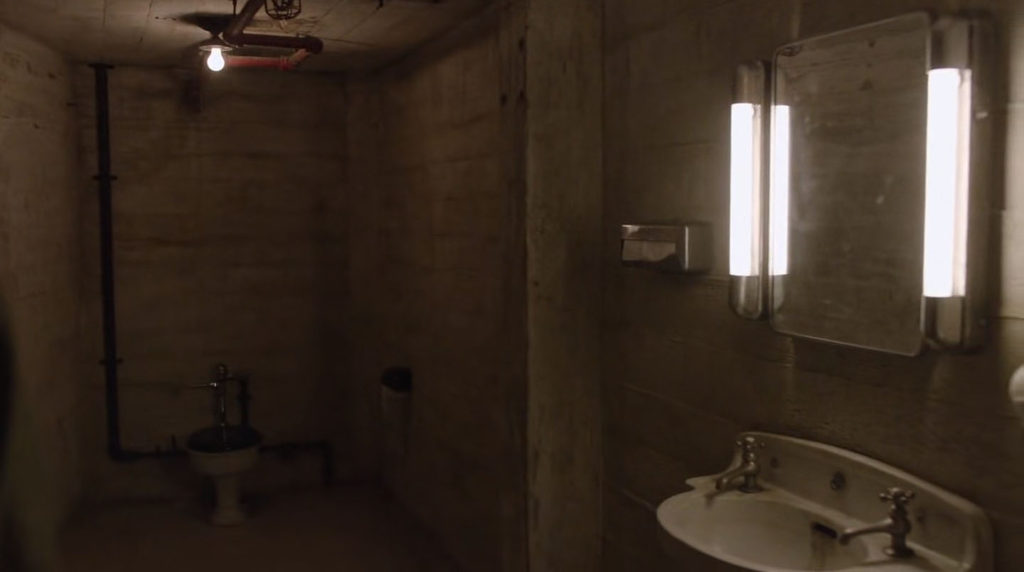
Sam checks the bathroom which could actually be a bathroom in the Capitol Milling Company location.
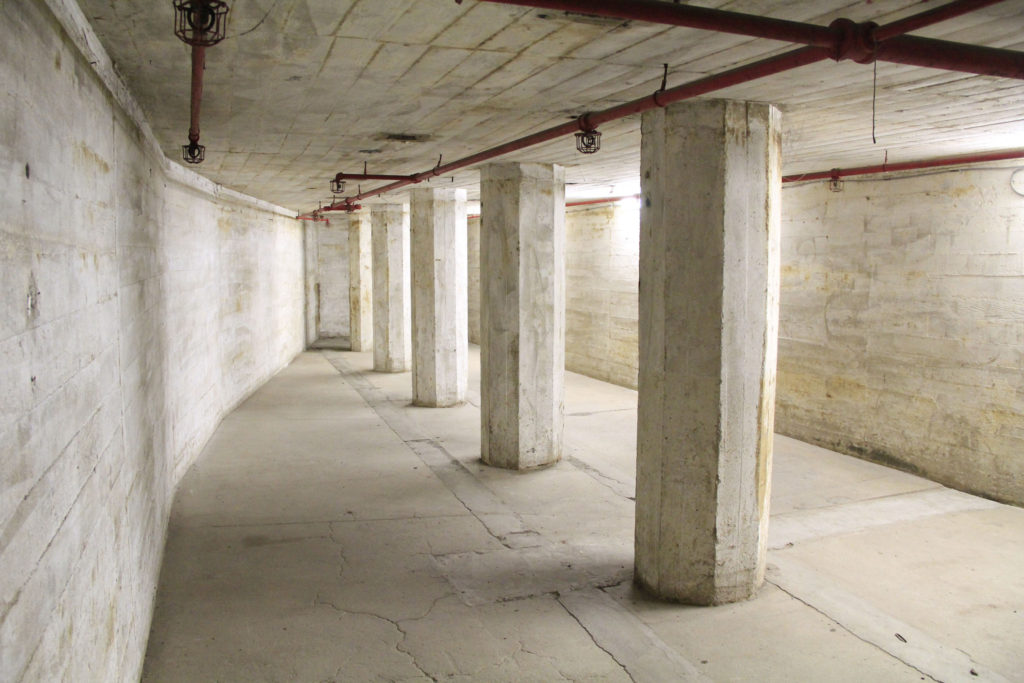
The only similar image I found was a photo from the opposite direction of the security desk location image. This is why I believe the bathroom may be one floor up or down). Yet the curve of the wall appears to match the screen cap.
BEHIND THE SCENES
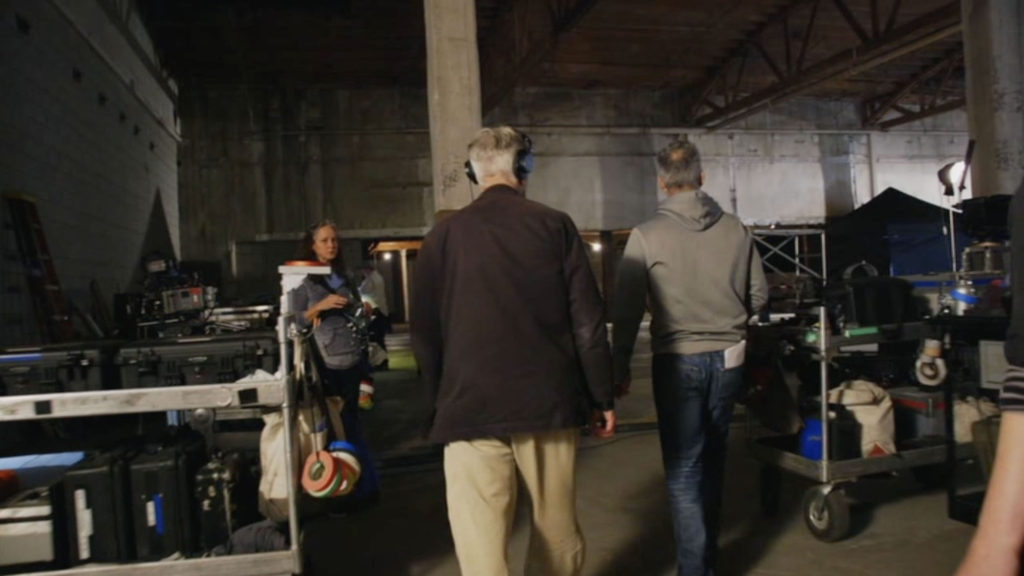
I adore all of the Behind the Scenes footage from the short films by Jason S. on the Season 3 Blu-ray set. The film “Two Blue Balls” contains the most footage from the Glass Box location. Here David Lynch is walking through Capitol Milling Company with Assistant Director Scott Cameron.
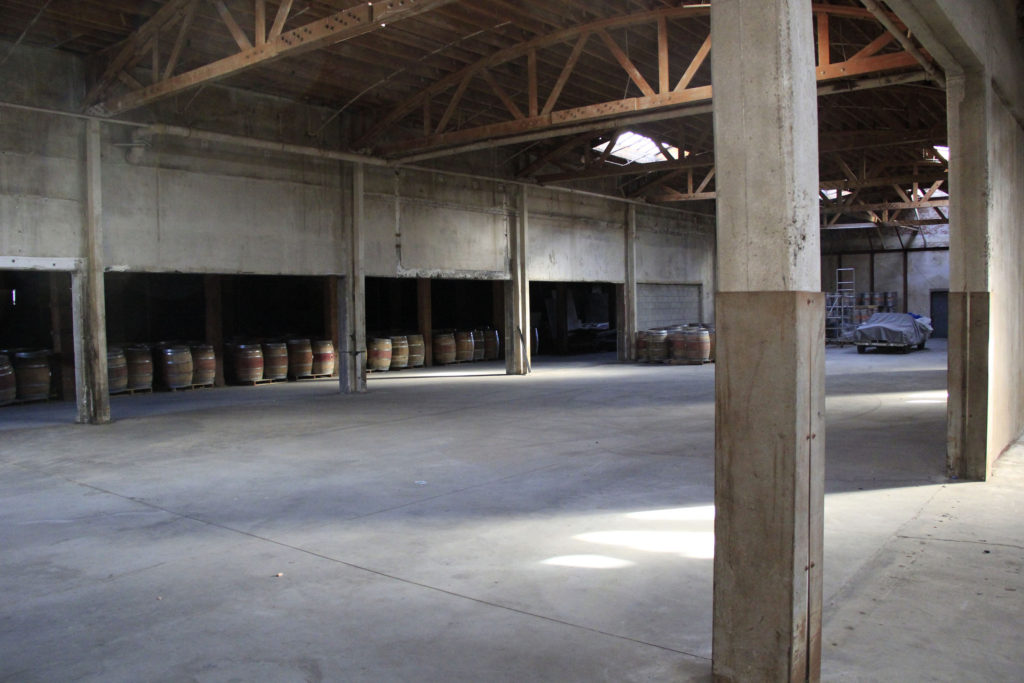
Here is a similar shot from inside Capitol Milling Company.
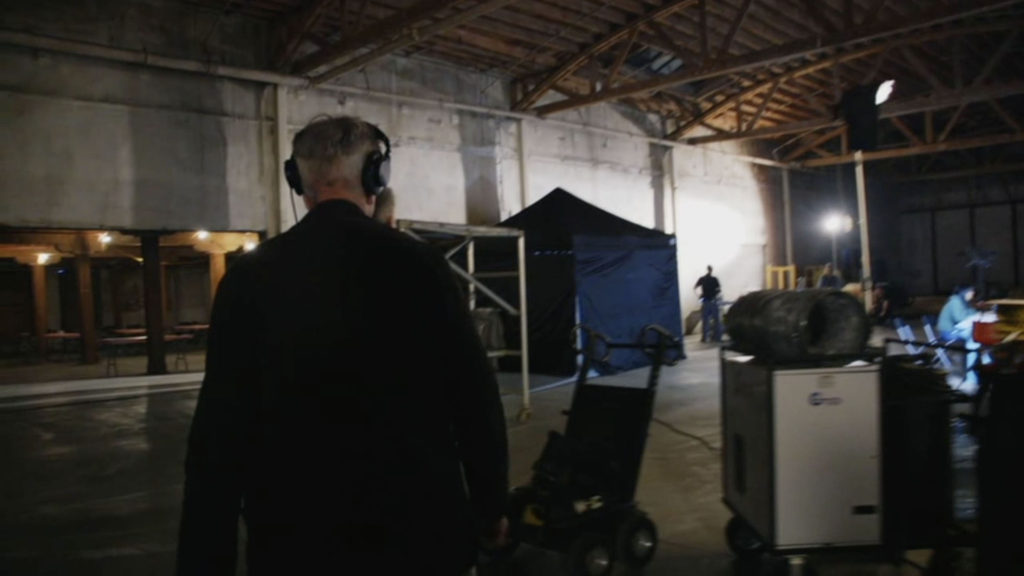
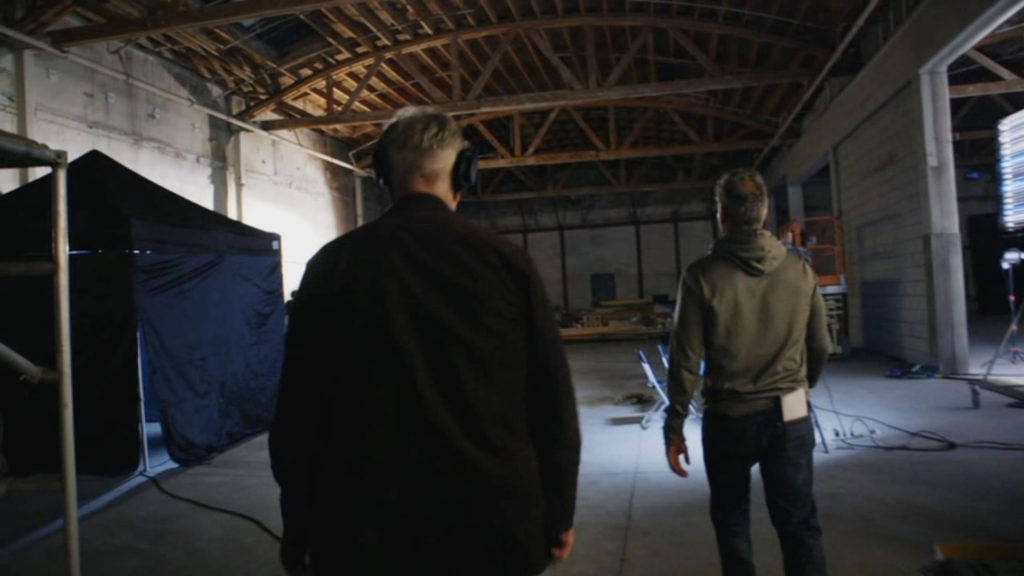
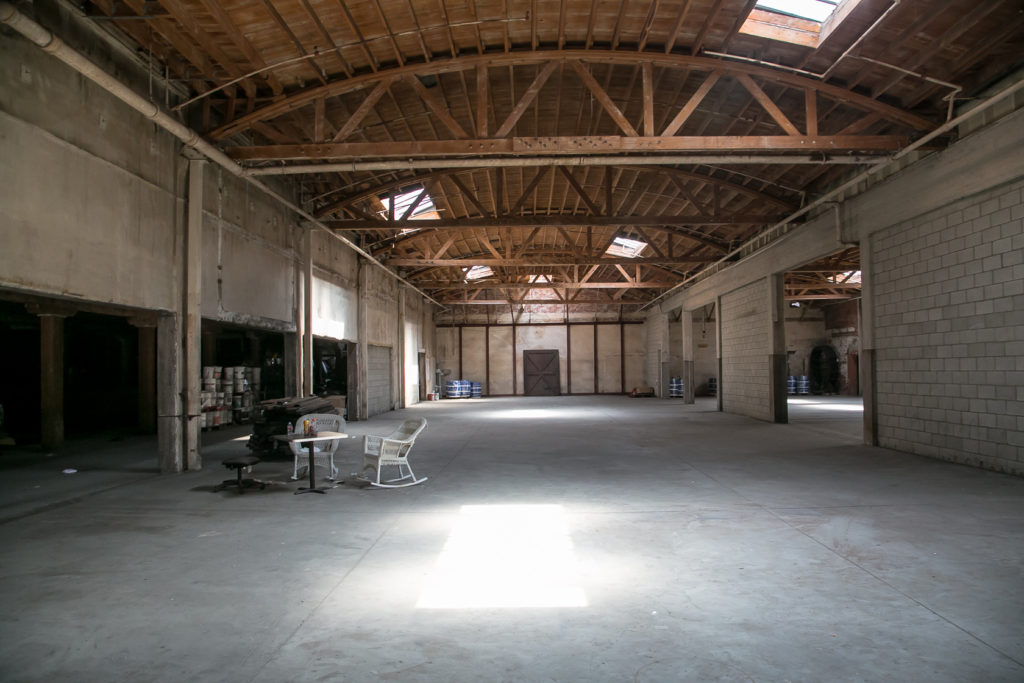
David and Scott walk toward a rig set up along a cinder block wall.
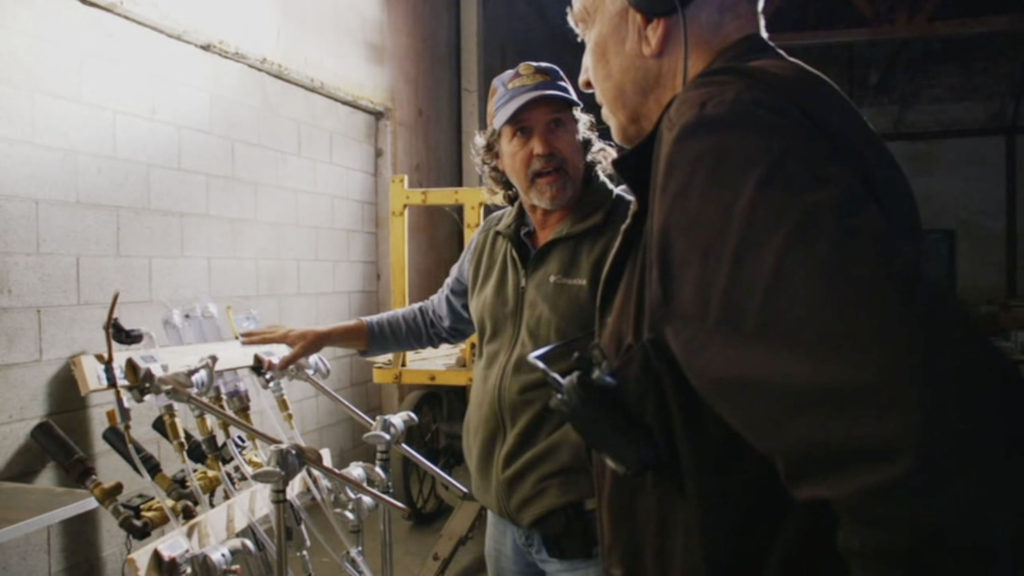
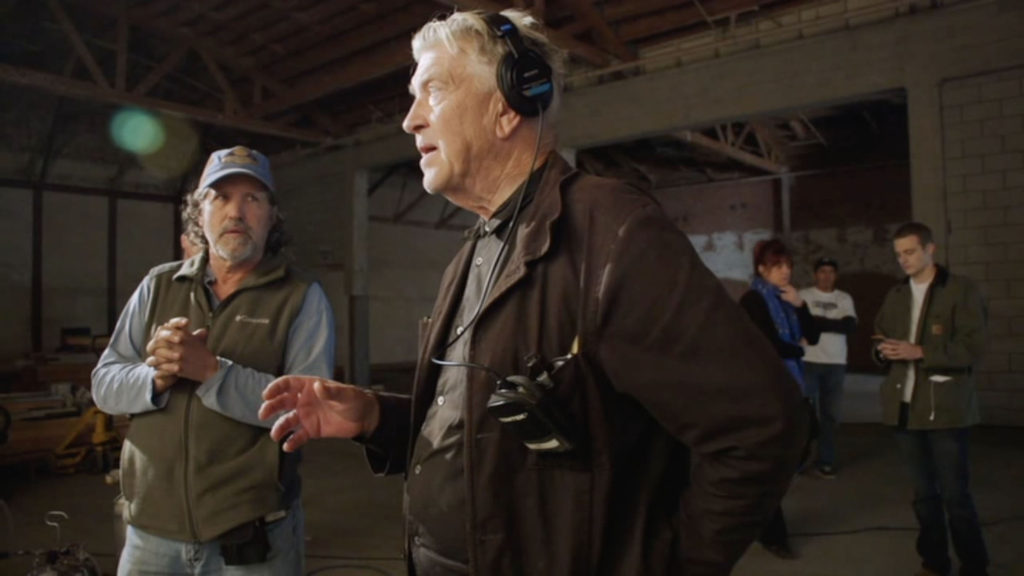
David speaks with SPFX Coordinator Phil Bartko about the blood sprayer created for the Glass Box scene.
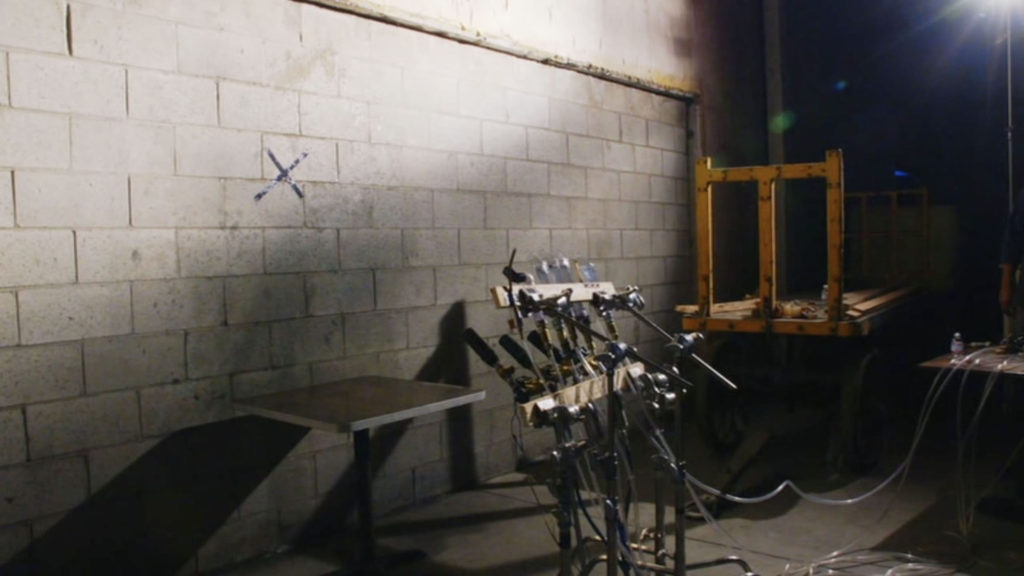
Phil demonstrates the sprayer using water.
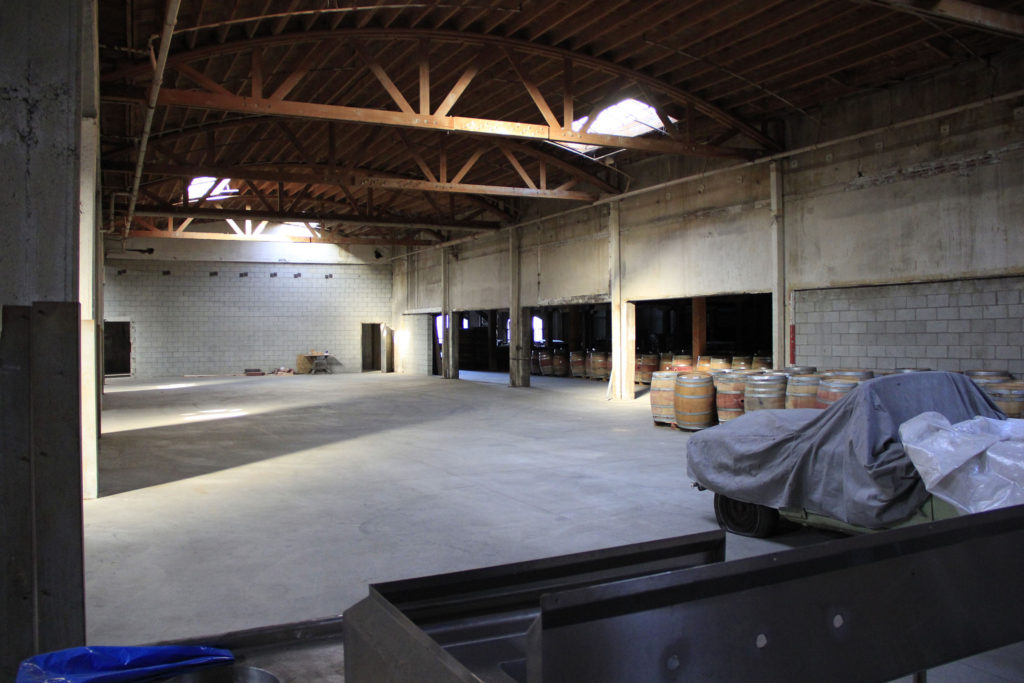
That same cinder block wall is seen to the right of the image above behind the casks.
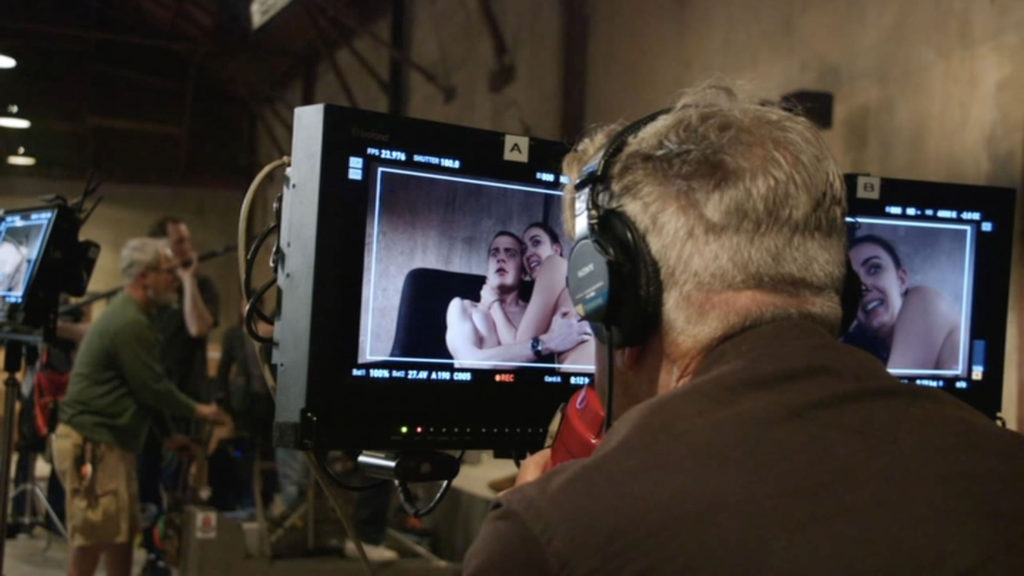
One other note about these scenes, which applies to the entire Season 3 shoot. I love the image above as it shows a two-camera set up – “A Camera” and “B Camera.” Scenes were shot using this method to capture multiple angles that could be used in editing. It probably saved a tremendous amount of time as the crew didn’t need to reset the shot for each take.
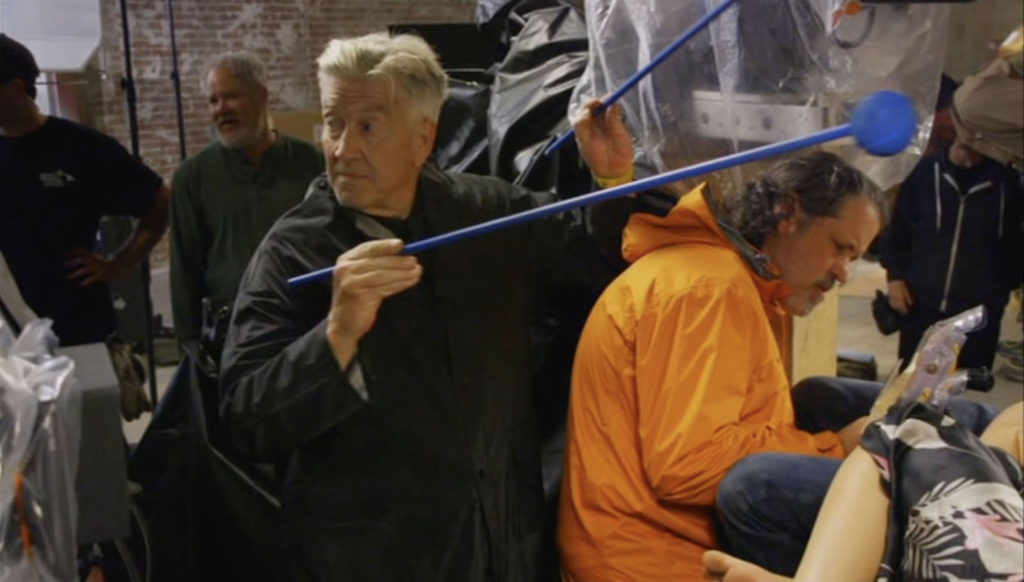
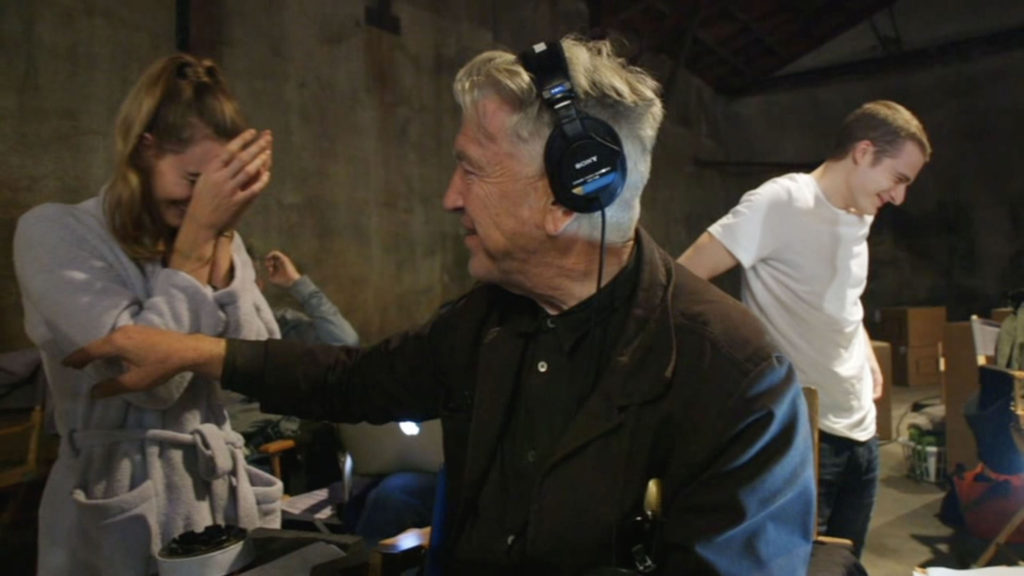
Finally, a parting image of David Lynch playing with two blue balls on a stick which made Madeline Zima and Benjamin Rosenfield laugh.

